Reunited After 30 Years, I Learned She Wanted More Than a Daughter—She Needed a Donor
It was a day I’d imagined countless times but never truly believed would come. After thirty years of absence, uncertainty, and longing, I was finally going to meet my biological mother. My hands trembled as I waited in the quiet corner of a small café, rehearsing what I would say and which questions I’d dare to ask. Would she look like me? Would she recognize me instantly, or would there be an awkward moment of hesitation? Every scenario played through my mind, each laced with a mixture of hope, curiosity, and an undercurrent of fear.
For most of my life, her absence had been an open wound, a question mark that colored every family gathering and milestone. I grew up with loving adoptive parents, yet the ache of not knowing where I came from or why I was given away never truly faded. Over the years, I gathered fragments of her story through adoption records and late-night internet searches, but nothing could prepare me for the moment we would finally sit face to face.
As the door swung open and she stepped in, I felt an electric jolt of recognition—and something else that unsettled me. Her eyes, so much like mine, searched the room with a mixture of anticipation and anxiety. The hug we shared was tentative, as if we were both afraid of what might be unlocked. In that instant, I realized that this reunion was not just about healing old wounds or answering questions. There were deeper currents at play—unspoken expectations, hidden motives, and the specter of a secret that threatened to unravel everything.
I was about to discover that what my mother needed from me went far beyond a simple reconnection. This was not only a story of reunion, but one of rupture, revelation, and the tangled web of love and obligation that binds us all.
The Unexpected Letter

It began, not with a phone call or a knock at the door, but with a plain white envelope slipped among the usual junk mail. My name was written in a looping, unfamiliar script that sent a chill across my skin. Inside, a single page—crisp, neatly folded—unfurled a message that would redraw the boundaries of my life. The letter was formal yet oddly intimate, opening with my full birth name and a hesitant expression of hope. She wrote, “I have thought of you every day,” a line that tugged at the frayed edges of my heart even as it made me wary.
The contents were brief, almost guarded, peppered with apologies and promises of answers if I was willing to meet. There was no mention of why now, after three decades of silence. The tone was both desperate and restrained, a plea for connection laced with something I couldn’t quite name.
As I read and reread her words, questions crowded my thoughts. What had suddenly compelled her to reach out? Why did her letter feel heavy with unspoken urgency? Even before I replied, I sensed this was not just a reunion—it was the start of something far more complicated.
The Airport Reunion
When I spotted her at the arrivals gate, my breath caught. She stood alone, clutching a small purse, eyes scanning the crowd with a mixture of hope and uncertainty. I recognized the shape of her face, the nervous way she twisted her ring—gestures I’d seen in the mirror without ever knowing their origin. For a moment, neither of us moved, frozen by the enormity of what was about to unfold.
Our greeting was clumsy, a hesitant hug that felt both too much and not enough. Her voice trembled as she said my name, and I realized she was as frightened as I was. The conversation that followed was halting, each of us offering small talk as a shield against the tidal wave of emotions threatening to break through.
I looked into her eyes, searching for answers, but found only the reflection of my own confusion. The air was thick with questions neither of us dared to ask. In that charged, awkward silence, hope and fear collided—setting the stage for the truths still hidden between us.
The Old Photo Album

Later that afternoon, as we sat in her modest living room, my mother reached for a battered photo album perched on a high shelf. Its leather cover was cracked and dusty, clearly untouched for years. She placed it between us, her fingers lingering on the edge as if gathering strength. When she finally opened it, a flood of faded images spilled out—birthday parties, holiday dinners, snapshots of a life I never knew.
At first, the nostalgia was overwhelming. I tried to piece together stories from the smiling faces and handwritten dates. But soon, confusion crept in. Some captions had my name, yet the child in the photo looked nothing like me. Dates overlapped in ways that seemed impossible. There were unfamiliar adults posing with her, their identities unexplained.
I asked gentle questions, but her answers were vague, sometimes evasive. The album, meant to bridge the gap between us, became a source of unease. With each turn of the page, I sensed that the truth was more complicated—and more closely guarded—than I had ever imagined.
The Stranger’s Voicemail

That night, as I lay in the guest room still reeling from the revelations of the photo album, my phone buzzed with a voicemail alert. The number was unfamiliar—a string of digits with no name attached. Curiosity mingled with dread as I pressed play, bracing myself for whatever message might follow.
A man’s voice, low and hurried, echoed in my ear. “You don’t know me, but you need to be careful. There are things you haven’t been told. She’s not being honest with you. Please, call me back.” The message ended abruptly, leaving only static and a pounding in my chest.
I replayed the voicemail several times, attempting to decipher more meaning from the clipped words and anxious tone. Who was this stranger, and how did he know about me—or my mother? The warning lodged itself in my mind, deepening the mystery and suspicion that were quickly overshadowing the fragile joy of reunion. I began to wonder, what else was my mother hiding?
The Family Dinner
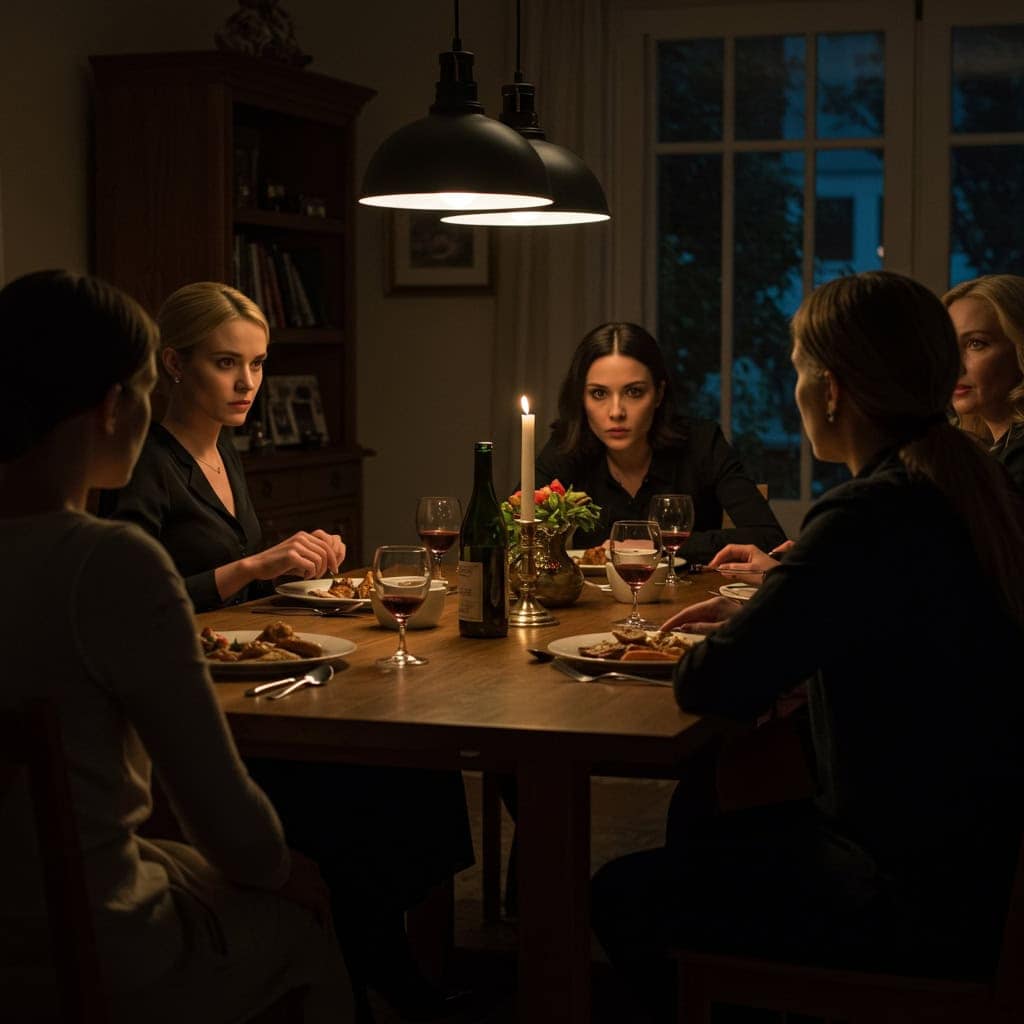
The next evening brought a family dinner that felt more like a social experiment than a homecoming. Seated around the table were relatives I’d only heard about in passing—each one a stranger, yet somehow intrinsically connected to the puzzle of my past. My mother made introductions, her voice artificially bright, but the tension in the room was unmistakable.
My aunt, sharp-eyed and skeptical, watched me closely, her questions thinly veiled as casual conversation. She asked about my upbringing and education, but her tone suggested she was searching for inconsistencies. My cousin, a few years older and fiercely protective of her immediate family, responded to my every answer with defensiveness, as if my presence alone was a threat to their carefully constructed narrative. In contrast, my uncle radiated warmth and jovial ignorance, telling stories from years gone by and welcoming me without reservation.
Beneath the surface, old family wounds and whispered secrets simmered, threatening to boil over. Every polite exchange felt loaded with subtext, and I sensed that these people knew far more about my story—and the real reasons for my return—than they were willing to admit.
The Faded Birth Certificate
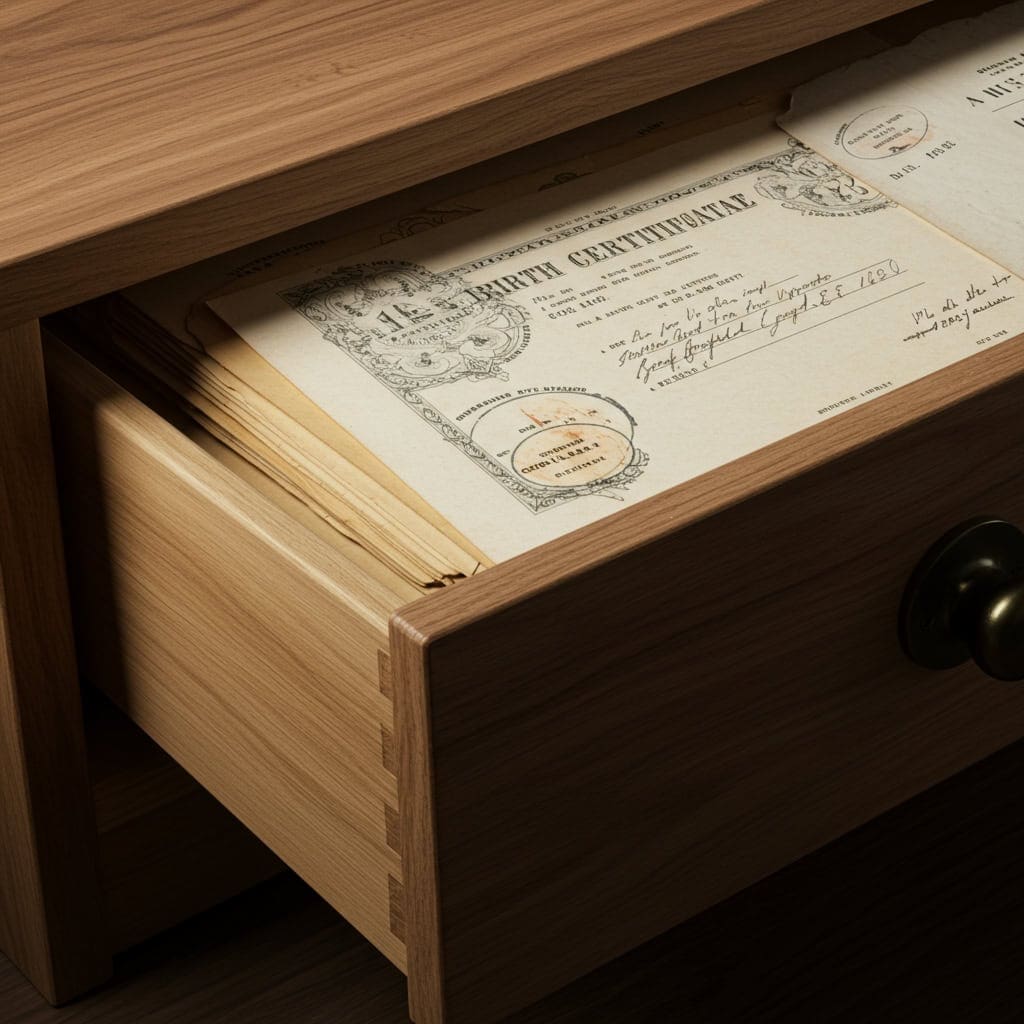
A few days after the family dinner, I stumbled upon a stack of old papers tucked into the back of a drawer in my mother’s bedroom. Among the yellowed documents and brittle envelopes was my original birth certificate—a piece of my history I’d never seen with my own eyes. My heart pounded as I scanned the delicate, faded print, searching for answers.
Almost immediately, discrepancies leapt off the page. My birth date was different by a few days from what I’d always been told. The hospital name didn’t match the stories my adoptive parents recounted. Even more unsettling, the signature in the “mother” field looked strangely unfamiliar, as if someone else had signed in my mother’s place.
At first, I wondered if it was a simple clerical error, the kind that sometimes slips through cracks in bureaucratic systems. But the more I examined it, the more intentional it seemed. This was no accident. The certificate hinted at secrets buried far deeper than paperwork—reshaping everything I thought I knew about my origins.
The Medical File
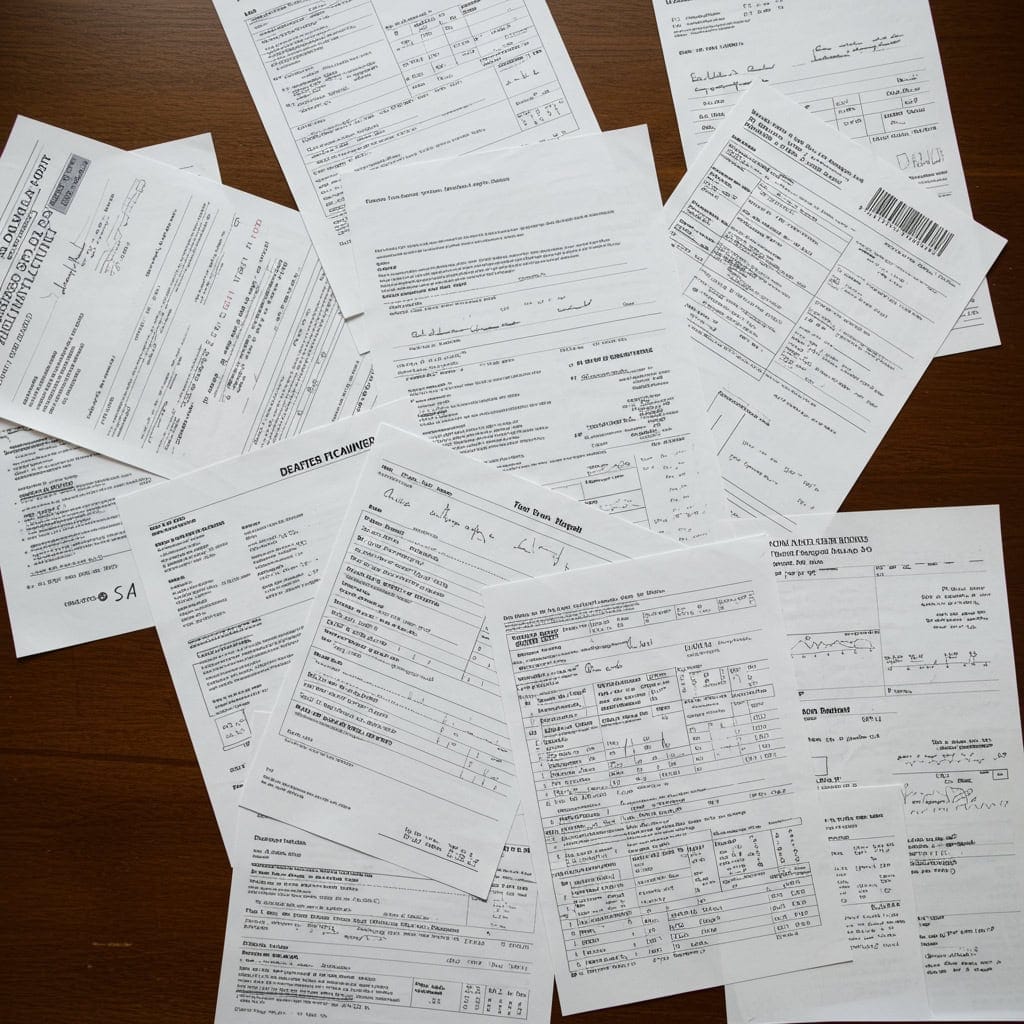
One afternoon, as I was helping my mother organize some papers, a thick folder slipped from the pile and spilled across the kitchen table. Its contents—pages of lab reports, doctor’s notes, and hospital discharge summaries—caught my eye immediately. I sifted through the documents, my unease mounting with each medical term and highlighted section.
It became clear that my mother was facing serious health issues, far more severe than the “occasional doctor visits” she’d casually mentioned. The words “renal failure,” “transplant evaluation,” and “donor needed” appeared again and again in the stack. I looked up, questions on the tip of my tongue, but she waved them away with a forced smile, insisting it was “just routine monitoring.”
But the urgency in the doctors’ notes told a different story. She needed a kidney donor—and soon. The realization dawned with chilling clarity: my sudden reappearance in her life was not just a coincidence, but a lifeline she desperately needed. The emotional stakes, already high, now felt inescapably entangled with life and death.
The Overheard Argument
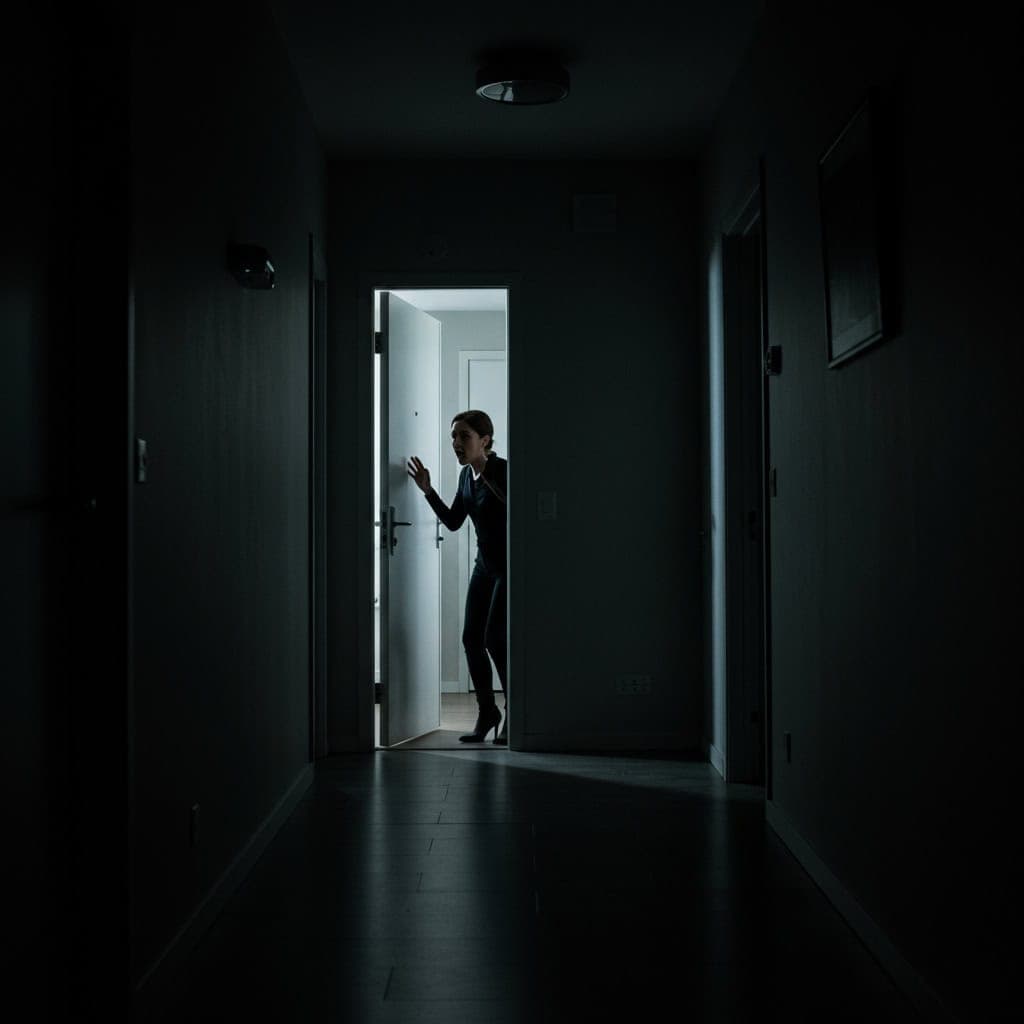
Late one night, unable to sleep, I wandered down the hall in search of water. As I passed my mother’s bedroom, I heard her voice—sharp, tense, and nothing like the gentle tone she’d used with me. The door was ajar, and I caught fragments of a heated conversation spilling through the crack.
“I told you, the timing has to be right,” she hissed. “We can’t just rush the tests. She barely trusts me as it is.” There was a long pause, followed by an exasperated sigh. “No, I haven’t told her everything yet. If she finds out, she might leave before we even know if she’s a match.”
My stomach tightened as I pressed myself against the wall, straining to make sense of the argument. Tests? A match? What hadn’t she told me? Each word fueled a growing sense of suspicion and dread. The reunion, once charged with hope, now felt like a carefully orchestrated strategy. I tiptoed back to my room, my mind racing with questions and a deepening mistrust that I could no longer ignore.
The Missing Money

The next morning, as I tidied up after breakfast, I noticed a bank statement left carelessly on the kitchen counter. Numbers and transactions jumped out at me—especially the large, repeated withdrawals and payments labeled as “medical expenses.” But what really caught my attention was the low balance, a stark contrast to the stories my mother had shared about her years of careful saving.
I couldn’t help but wonder if money, alongside health, played a role in her reaching out after all these years. The idea unsettled me deeply. Was I just a means to an end, a solution to financial and medical problems she could no longer face alone? Or was this just a desperate situation spiraling beyond her control?
I tried to brush aside my doubts, but the evidence was hard to ignore. Financial strain can have a profound effect on family relationships, especially when paired with chronic illness—something well-documented by organizations like the National Kidney Foundation. My suspicions grew, feeding the uneasy feeling that I was being pulled into something much larger than a simple family reunion.
The Hospital Visit
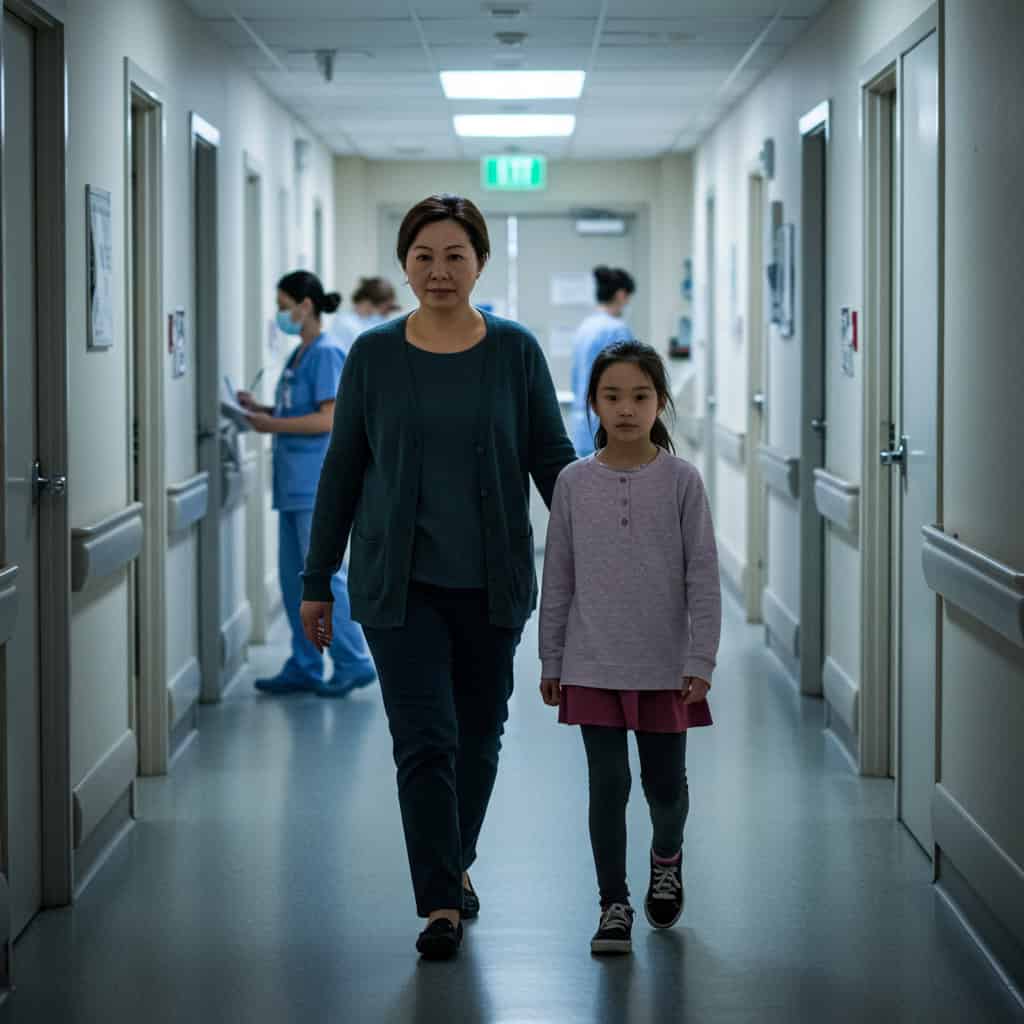
A few days later, my mother suggested we visit the hospital for what she called “routine tests.” She insisted it was nothing to worry about, just standard check-ups for both of us. Still, as we walked through the antiseptic halls, a sense of foreboding settled over me. The nurses greeted my mother with familiarity, asking pointed questions about “the workup” and “potential donor compatibility.”
I realized, with a jolt, that this was no ordinary appointment. As I sat in a sterile room, a phlebotomist drew my blood and handed me forms that looked suspiciously like pre-transplant paperwork. My mother avoided my gaze, deflecting my questions with vague reassurances. The truth became painfully clear: my presence at the hospital was not about reconnecting or even supporting her through illness. It was about assessing whether I could save her life.
That pivotal moment—surrounded by the hum of hospital machinery and the weight of unspoken truths—shattered any lingering illusions I had about the purpose of our reunion. I was more than a daughter; I was a potential donor.
The Genetic Test Results
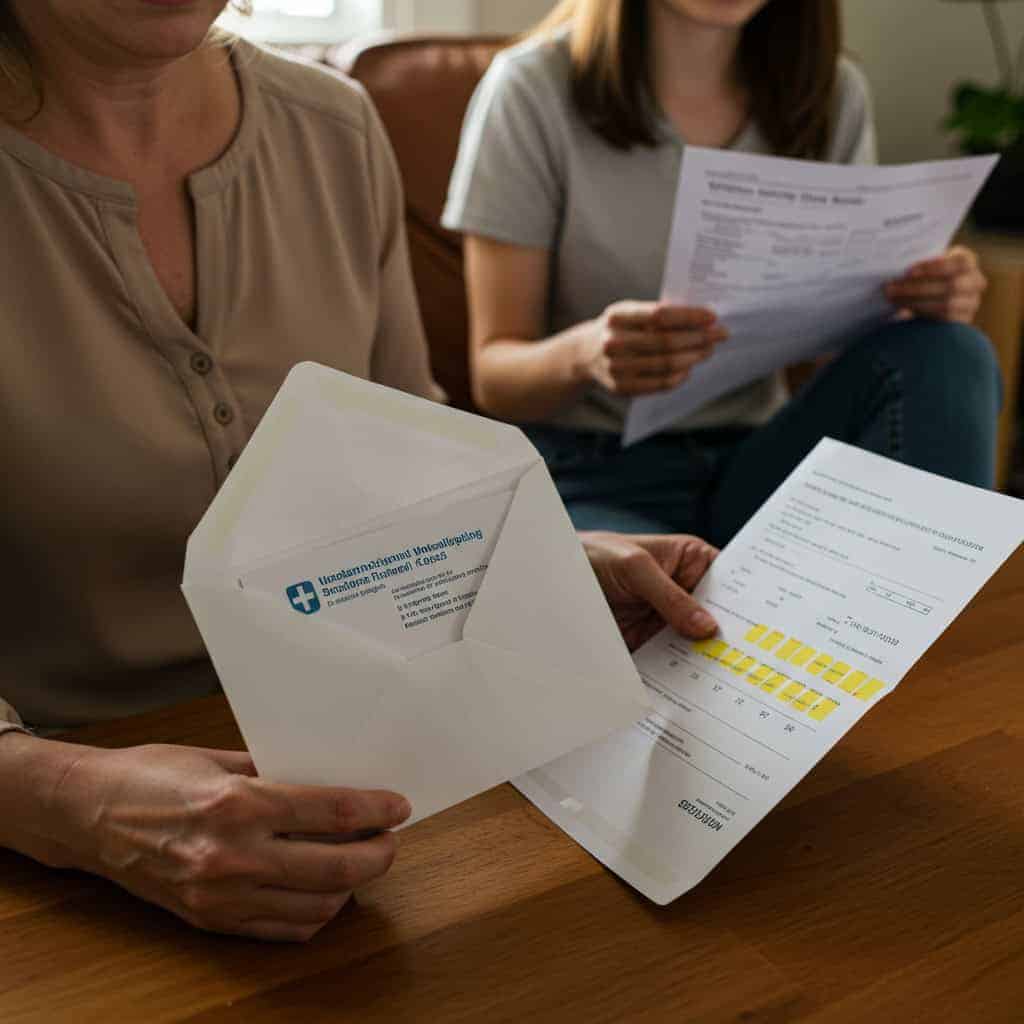
A week after the hospital visit, a thick envelope arrived in the mail bearing the hospital’s logo. My mother opened it with trembling hands, eyes scanning the pages with desperate hope. After a moment, she looked up, unable to hide her relief. “You’re a perfect match,” she whispered, her voice breaking with emotion.
I read the genetic test results for myself, the scientific language and highlighted numbers making it all painfully clear. There was no ambiguity: I was an ideal candidate to be her kidney donor. The weight of that knowledge settled over me, heavy and inescapable. Suddenly, everything that had felt confusing—the secrecy, the urgency, even the timing of our reunion—clicked into place.
My mother’s true intentions, once shrouded in nostalgia and longing, came into sharp focus. I was not just her long-lost daughter—I was her best hope for survival. The emotional collision of reunion and expectation felt overwhelming, and I realized that the next steps I took would define not only my future, but hers as well.
The Sibling Revelation
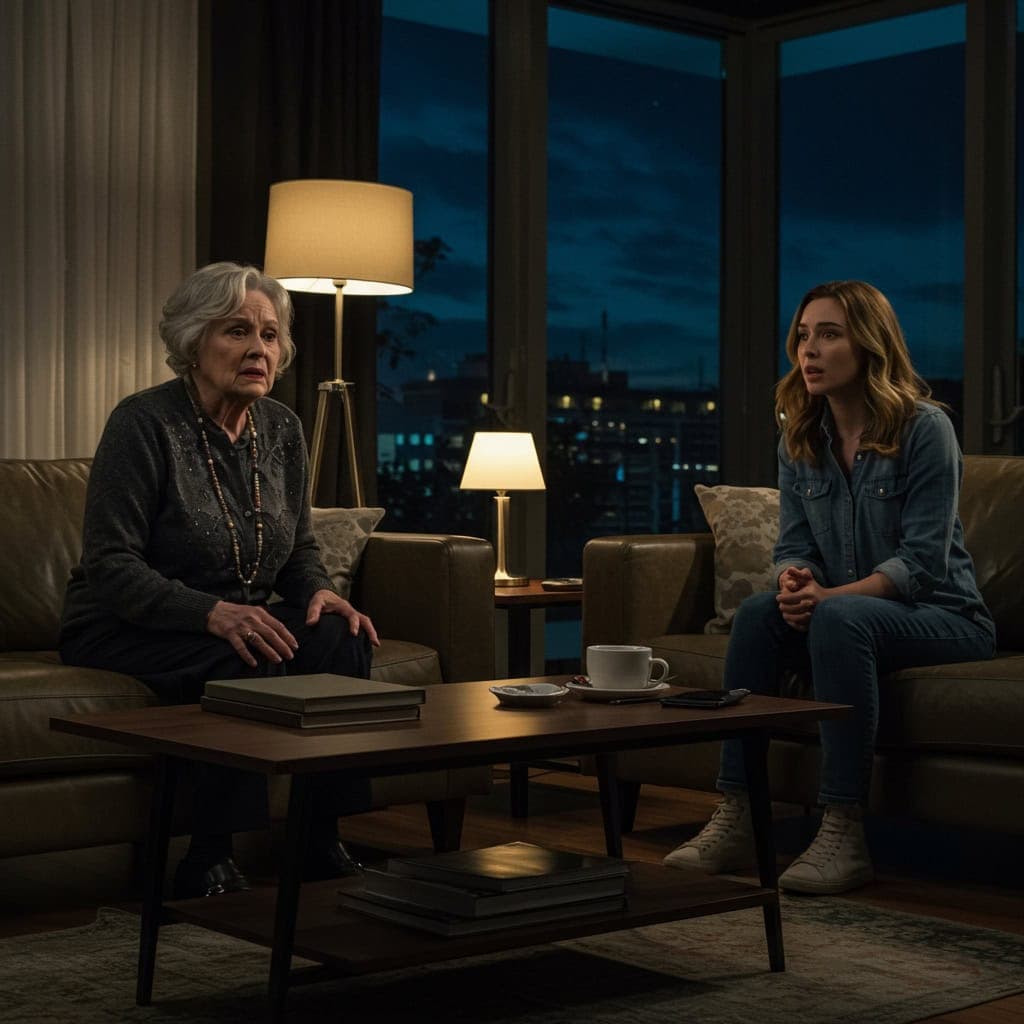
Just as I was wrestling with the implications of the genetic match, another secret surfaced—one that would further complicate my sense of family and loyalty. My mother sat me down one evening, her demeanor more anxious than ever. “There’s something else I need to tell you,” she began, her hands twisting in her lap. “You have a half-brother. His name is Daniel. He’s four years younger than you.”
The revelation hit me with a mix of shock and curiosity. I had grown up an only child, always wondering if somewhere out there, I had siblings. Now, not only did I have a brother, but he lived just a few towns away. My mother explained that Daniel had been raised by his father’s family, and that their relationship was distant at best.
Meeting Daniel brought a new perspective—and more secrets. He had been approached years earlier about medical testing, but refused to participate. Our conversations revealed gaps in the family story, suggesting that what I knew barely scratched the surface. The emergence of a sibling forced me to reconsider my loyalties, and made it clear that the family’s past was even more tangled than I had imagined.
The Exposed Email Chain
It was Daniel who stumbled upon the final, undeniable proof of my mother’s intentions. While searching for an old family photo in a shared computer folder, he found a lengthy email chain between our mother and several relatives. The subject lines alone—“Donor Plan,” “Approaching Her,” and “Timing”—made my stomach drop as he forwarded them to me.
Reading through the emails, I saw every suspicion confirmed in black and white. The family had been discussing my potential as a kidney donor long before I received that first letter. There were debates about when to reach out, who should contact me, and how best to keep me in the dark until the tests were complete. The tone was calculated and pragmatic, with little mention of my feelings or the complexities of our fractured relationship.
The discovery shattered any remaining trust or fragile alliances I had begun to form. I was no longer just a daughter or a sister—I was a solution, a carefully considered option in a desperate plan. The emotional fallout would ripple through every conversation and decision to come.
The Outsider’s Warning
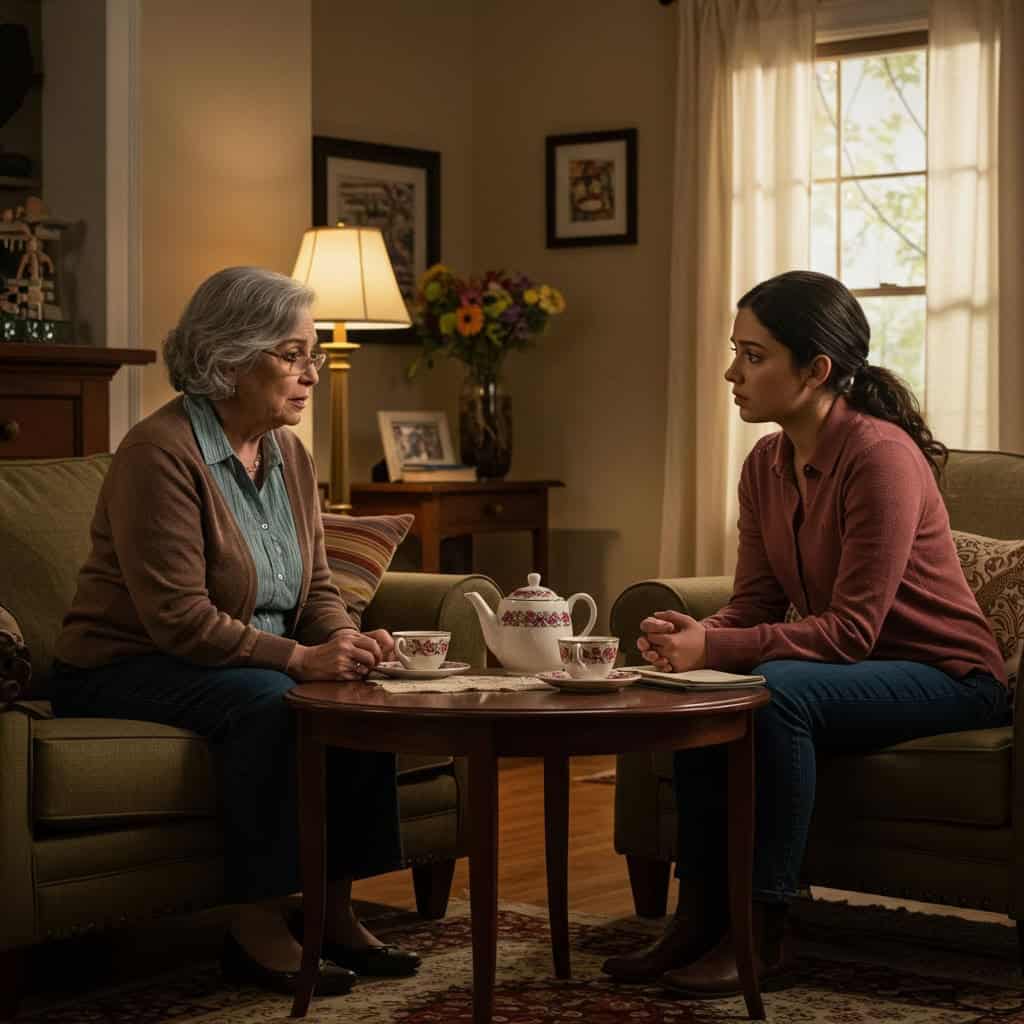
In the wake of the exposed emails, I found myself more isolated than ever—until an unexpected confidant reached out. Mrs. Alvarez, a longtime neighbor and family friend, invited me over for tea. Her gentle demeanor put me at ease, but there was a gravity to her words that made me listen closely.
She spoke quietly, sharing stories of past betrayals and long-buried grievances within the family. “You must be careful,” she urged, her gaze steady. “Your mother has always been resourceful, but she can be ruthless when desperate. More than once, I’ve seen people get hurt when they trusted too easily.” She recounted instances where promises were broken or truths twisted to fit urgent needs.
Mrs. Alvarez’s warning wasn’t just about my mother’s illness or her quest for a donor—it was about patterns of manipulation that had shaped the family for years. Her perspective, coming from someone outside the immediate web, made me reconsider my instincts. Trust, she reminded me, should never be given blindly, no matter the blood tie.
The Confrontation
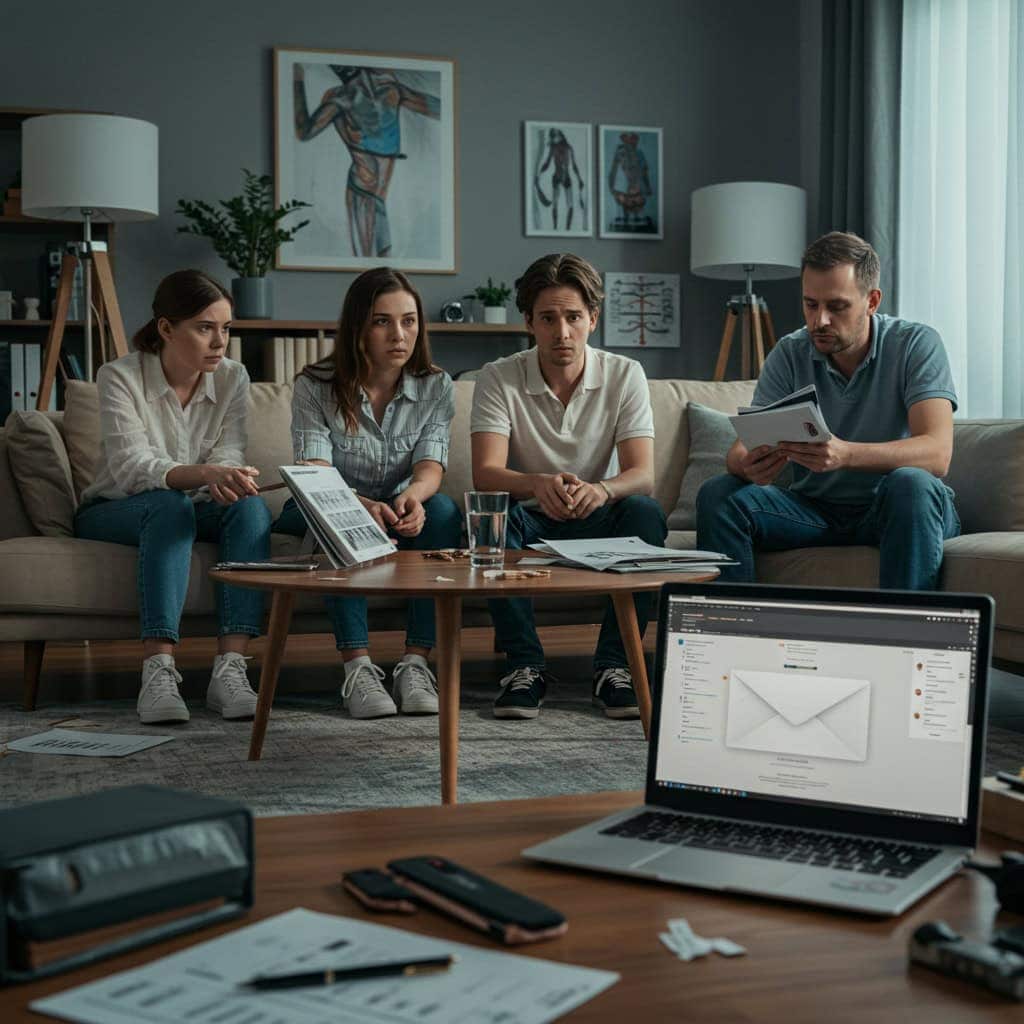
Unable to bear the secrecy and manipulation any longer, I called a family meeting. My voice shook as I insisted the truth come out, but I stood firm, demanding that my mother explain herself in front of everyone. The living room, usually a place of forced camaraderie, became a stage for raw, unfiltered emotion.
I laid out what I had discovered: the medical files, the genetic test results, the exposed email chain. I asked her, point-blank, if our reunion had ever truly been about reconnection—or if it had always been about finding a donor. My aunt looked away, my cousin bristled defensively, and Daniel hovered near the door, ready to bolt.
My mother, cornered and trembling, tried to justify her actions. She spoke of desperation, her failing health, and her regret for the years apart. “I never wanted it to be like this,” she sobbed, but the damage was done. The confrontation ignited arguments and accusations, with each family member taking sides. The rupture was now out in the open, and there would be no going back to the fragile peace we had maintained before.
The Apology That Wasn’t
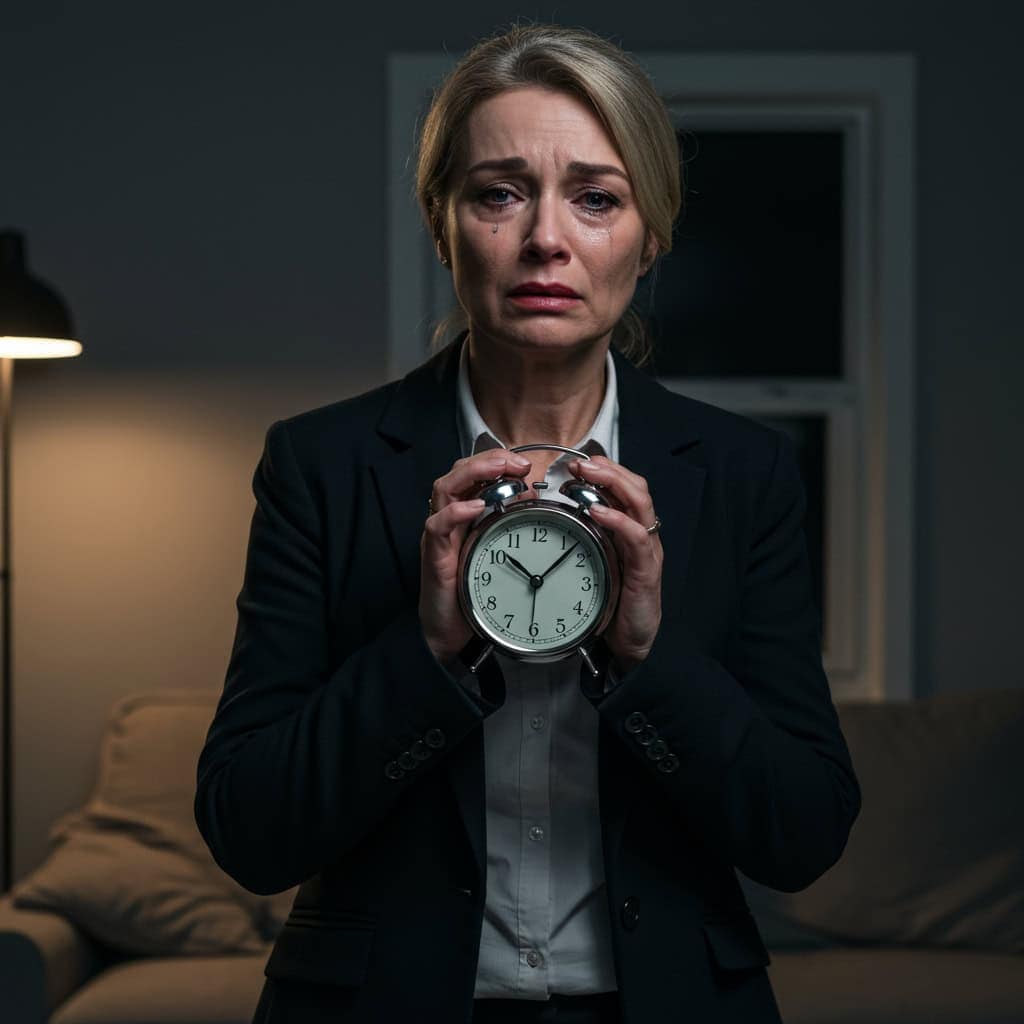
After the confrontation, my mother pulled me aside, her face streaked with tears but her posture still guarded. She tried to apologize, but the words rang hollow. “I’m sorry if you felt used,” she said, her voice cracking, “but I didn’t know what else to do. I’m running out of time.” The apology was laced with justification—her desperation eclipsing any real sense of remorse.
She spoke at length about her illness, her fear of dying, and her deep regret for the years we’d lost. But when I waited for her to acknowledge the pain her deception had caused, she fell silent. It became painfully clear that her focus was on her own predicament, not on the betrayal I felt.
I struggled to process the disappointment. I had hoped for honesty and healing, or at least an admission of wrongdoing. Instead, I was left with a sense of emptiness—a realization that sometimes, the apologies we seek are never truly given, and the wounds they leave are slow to heal.
The Divided Family
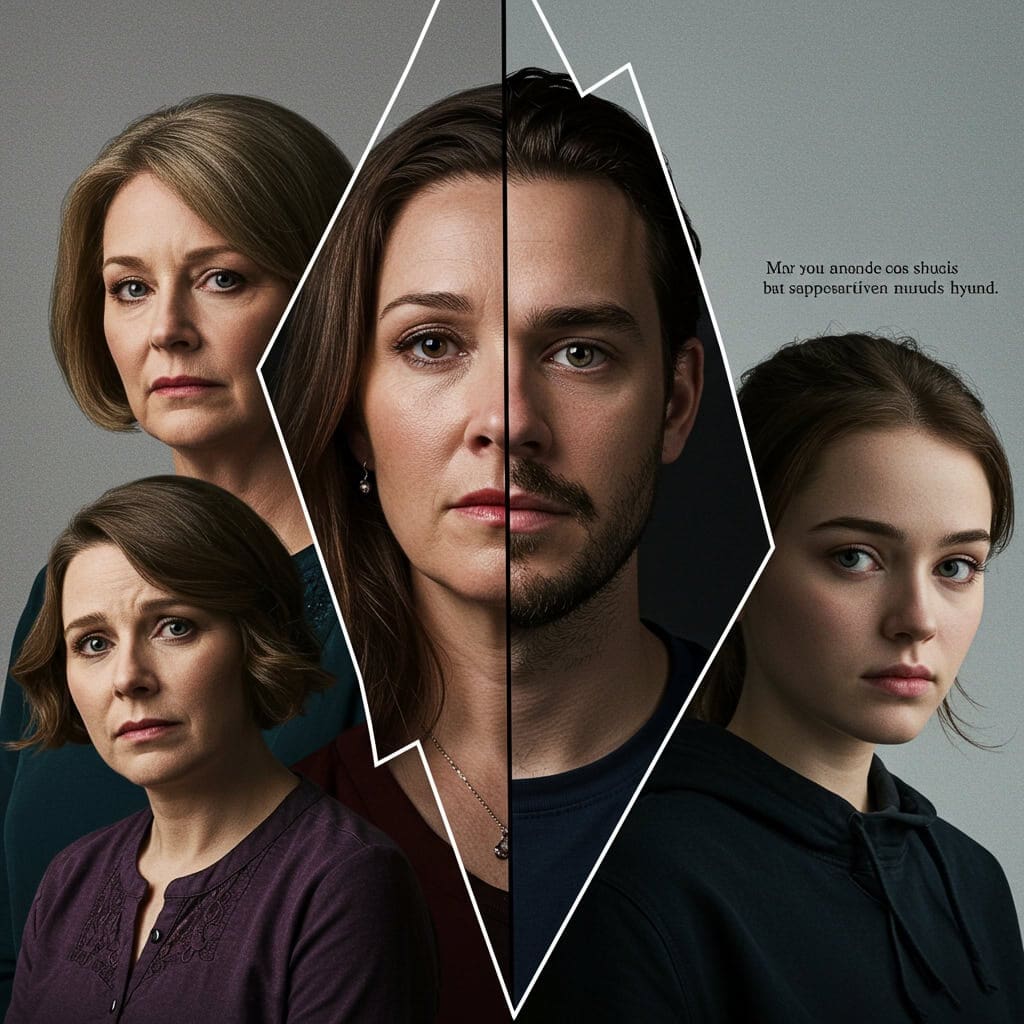
In the aftermath of the confrontation and my mother’s hollow apology, the family fractured along sharp, painful lines. Some relatives, particularly my aunt and cousin, rallied around my mother, defending her actions as those of a desperate woman with no other options. They urged me to show compassion, reminding me of the severity of her illness and the time lost between us.
Others, including Daniel and my uncle, sided quietly with me. They voiced their support in hushed phone calls and late-night texts, expressing their own outrage at the deception and manipulation. The rift deepened with each passing day, making even simple family gatherings tense and unpredictable.
Holidays were split, conversations became curt, and old resentments bubbled to the surface. The emotional toll of divided loyalties made healing seem even further out of reach. According to the Psychology Today, such rifts can take years to mend—if at all. Our family, once hopeful for reunion, now felt irreparably changed.
The Lawyer’s Visit
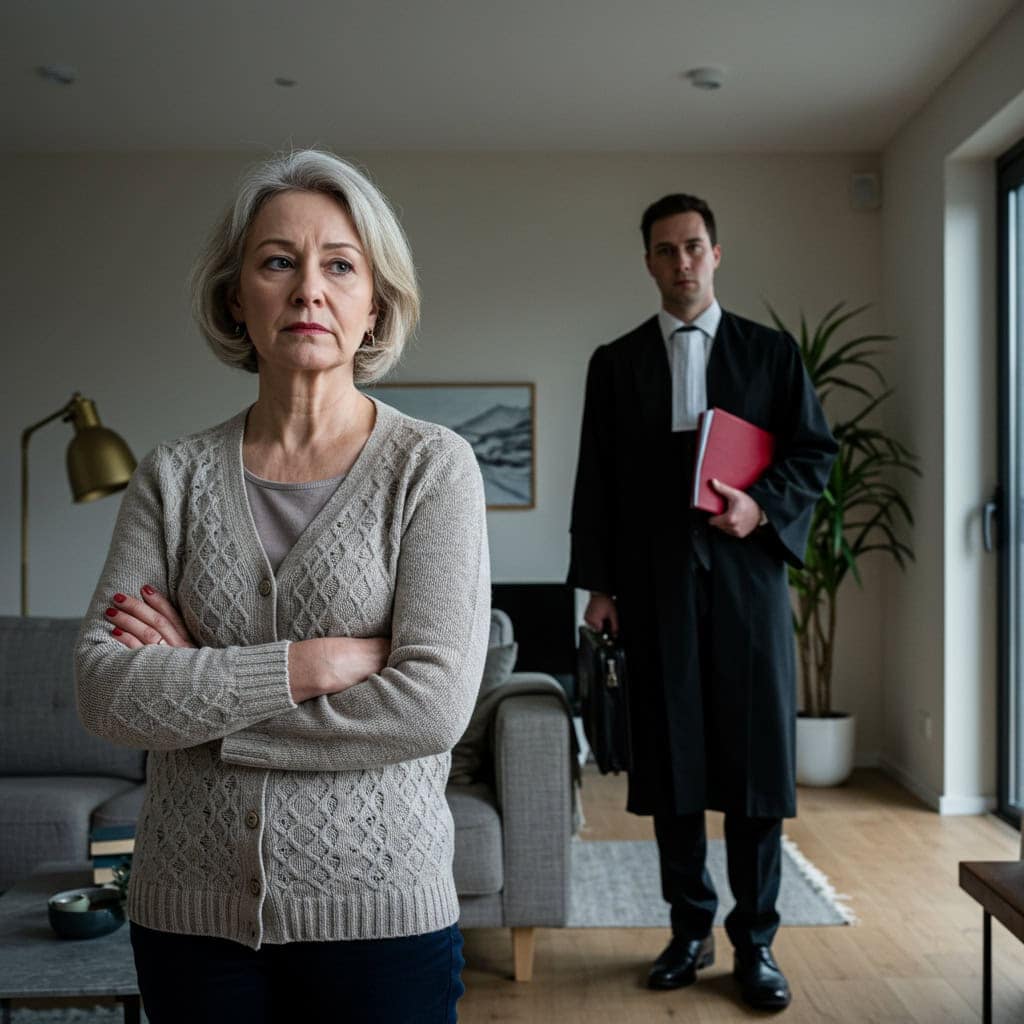
As if the emotional fallout weren’t enough, the situation soon took a legal turn. One afternoon, a lawyer arrived at my mother’s request, briefcase in hand and demeanor all business. He explained, with practiced professionalism, that my mother wanted to establish a power of attorney—giving me authority over her medical and financial decisions should her health deteriorate further.
The conversation was surreal. The paperwork outlined serious responsibilities, from accessing bank accounts to making life-or-death calls about transplants and treatment plans. The pressure mounted as my mother watched me, eyes pleading. The lawyer emphasized the urgency, highlighting how critical it was to “have everything in place” before her condition worsened.
I felt trapped between compassion and caution, uncertain whether this was about preparing for the future or tightening my role in a plan I hadn’t agreed to. As the American Bar Association notes, power of attorney is a powerful tool, and not a decision to be made lightly. For me, it was another layer of pressure in an already overwhelming situation.
The Childhood Memory
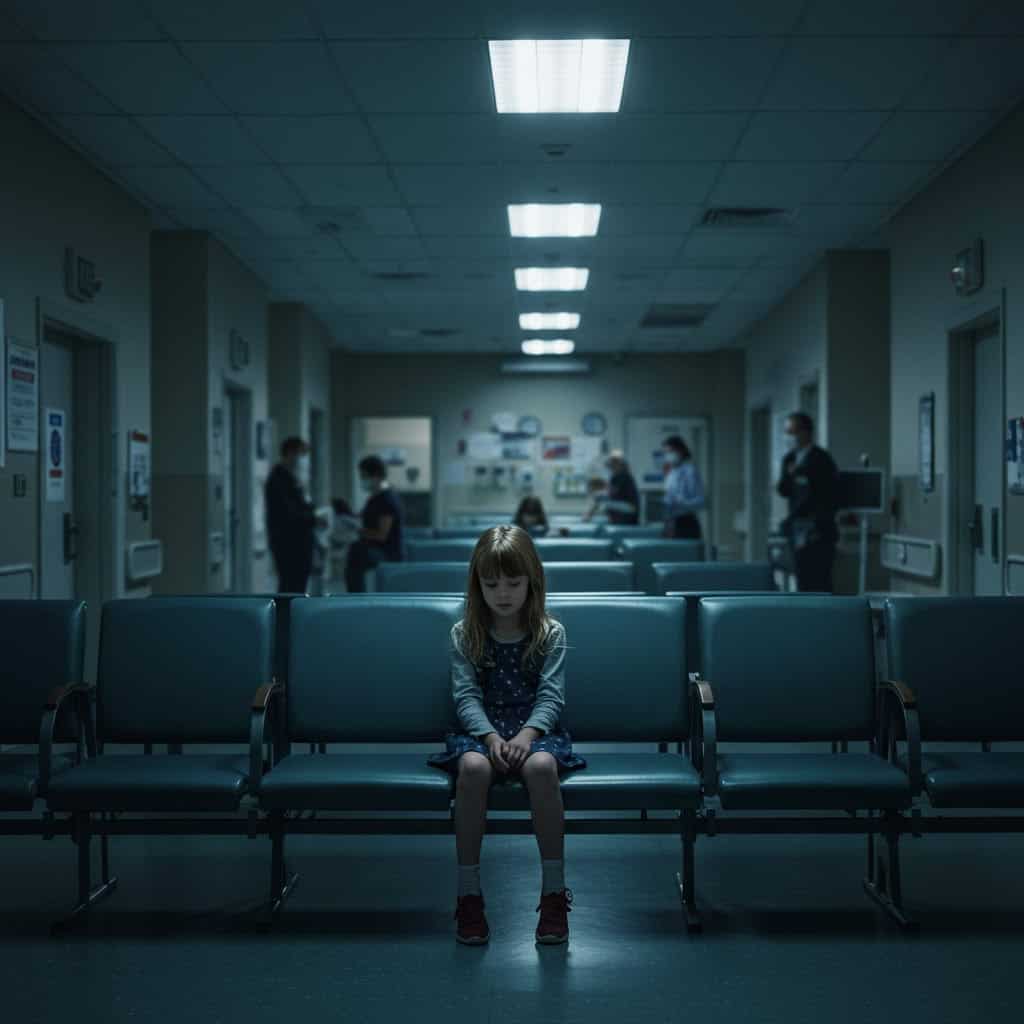
Amid the chaos and mounting pressure, a long-buried childhood memory surfaced unexpectedly. I was folding laundry in the guest room when the scent of my mother’s perfume—floral and sharp—triggered a vivid flashback. I remembered a hospital visit from my early years, sitting alone in a cold waiting room while unfamiliar adults whispered urgently nearby.
Until now, I had always assumed that day was just another doctor’s appointment. But in this new context, I wondered if it had been something more—perhaps the first sign of my mother’s chronic illness, or even an early attempt to reconnect and assess my health, years before this orchestrated reunion.
The realization unsettled me, recasting my past with a sense of unease and heartbreak. I saw that my story—and my mother’s—had been intertwined by hidden motives far longer than I’d understood. The emotional impact deepened, as I recognized just how far back the roots of our complicated relationship extended, shaping everything that had followed.
The Medical Ultimatum
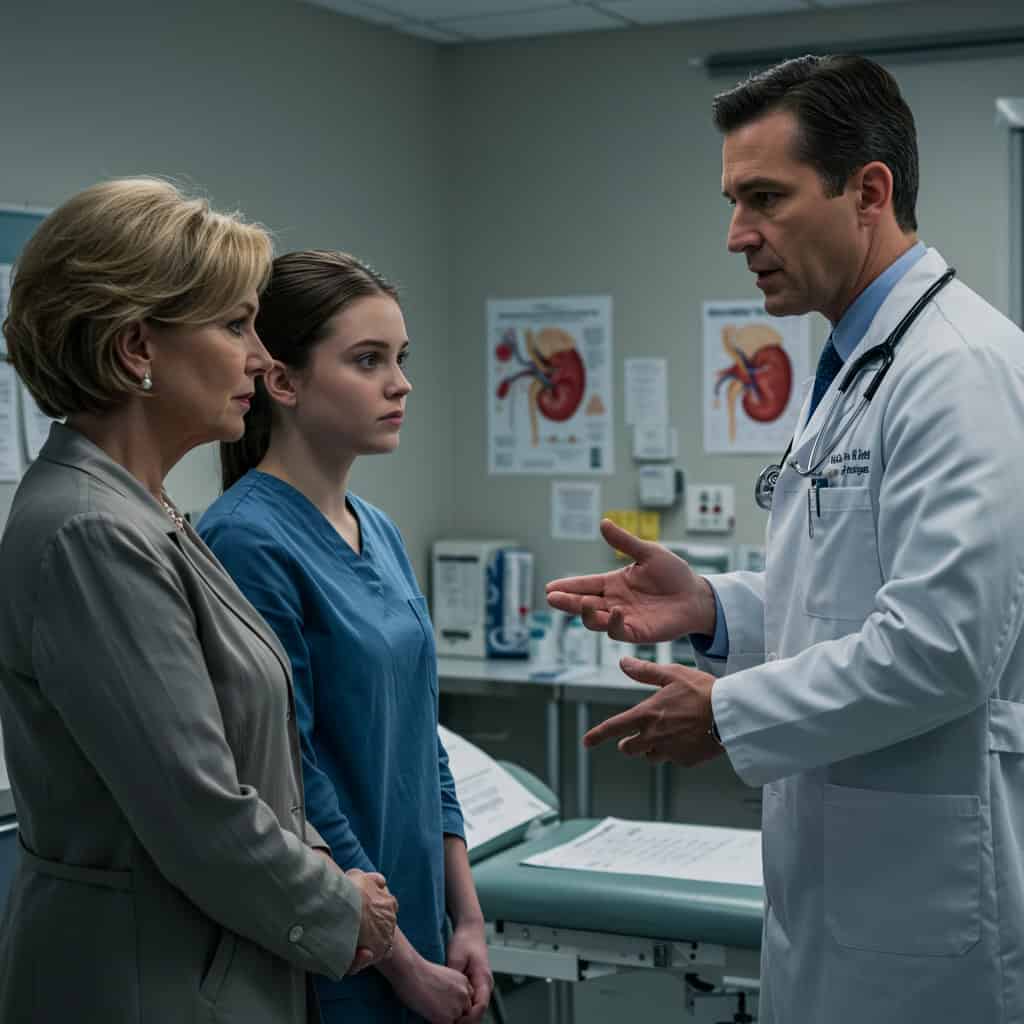
The tension reached its peak when my mother’s doctors requested a meeting with both of us. We sat in a sterile office as they explained that her kidney function had deteriorated to a critical point. “A transplant is no longer optional—it’s a necessity,” one physician stated, his tone leaving little room for hope without immediate action. They outlined the risks, the dwindling options, and how my compatibility as a donor offered her the best—perhaps only—chance of survival.
Their words left me reeling, trapped between guilt and resentment. The National Kidney Foundation emphasizes the profound emotional toll that living donors face, especially when pressure and family dynamics are involved.
I felt my autonomy slipping away, replaced by a crushing sense of responsibility for my mother’s fate. The urgency in the doctors’ voices, combined with my mother’s pleading gaze, forced me to confront an impossible choice. The weight of obligation pressed hard, making it clear there would be no easy escape from this painful crossroads.
The Aunt’s Betrayal
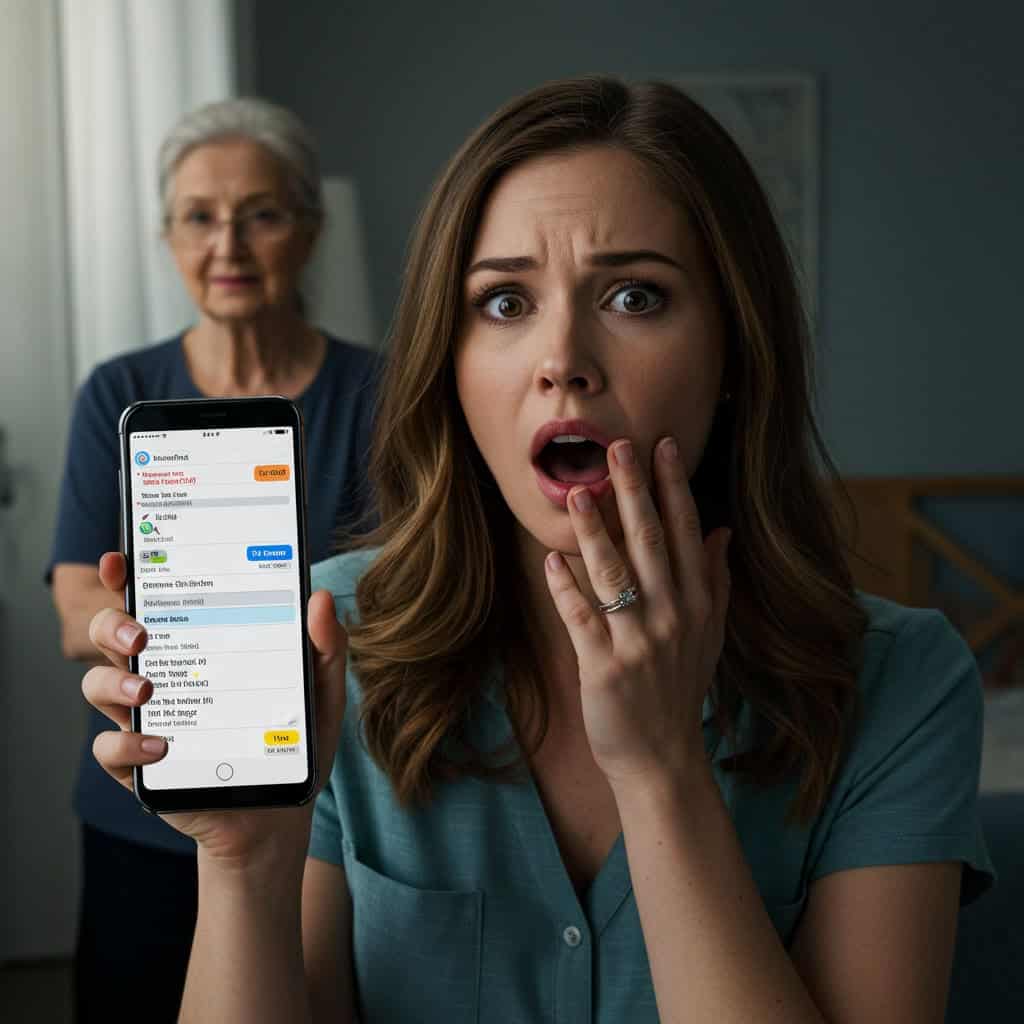
In the midst of the turmoil, another painful truth surfaced—my aunt, whom I had come to trust, had been deeply involved in my mother’s plan from the beginning. I found a series of texts between the two, revealing that my aunt had not only encouraged the reunion, but had also advised my mother on how best to approach me and keep me engaged until the donor tests were completed.
When confronted, my aunt’s face flushed with guilt, but she stood by her actions. “You have to understand, she’s my sister,” she insisted, her voice wavering. “I couldn’t watch her die when there was a chance to save her. Maybe it was wrong, but what else could I do?” The justification in her tone clashed with the remorse in her eyes.
Her betrayal cut deeply, fracturing another bond I had begun to rely on. The lines between love, loyalty, and manipulation blurred further, leaving me doubting not just my mother’s motives, but the very foundation of family trust I’d hoped to rebuild.
The Hidden Journal

While searching for a pair of scissors in my mother’s desk, I stumbled upon a slim, leather-bound journal wedged behind a stack of papers. Its pages were filled with my mother’s slanted handwriting—raw, unfiltered entries that chronicled her fears, regrets, and motivations over the past decade.
I read late into the night, absorbing her words. She wrote of sleepless nights haunted by guilt over giving me up for adoption, and the crushing anxiety that accompanied her diagnosis. I found heartbreaking confessions of loneliness and longing, and a desperate hope that our reunion might offer redemption—not just for her health, but for her soul.
For the first time, I glimpsed the depth of her vulnerability. The journal didn’t excuse her manipulation, but it did offer a sliver of empathy. I saw a woman fighting her own mortality, making flawed decisions from a place of terror and love. That insight softened my anger, if only slightly, and made the complexity of our relationship even harder to untangle.
The Cousin’s Confession
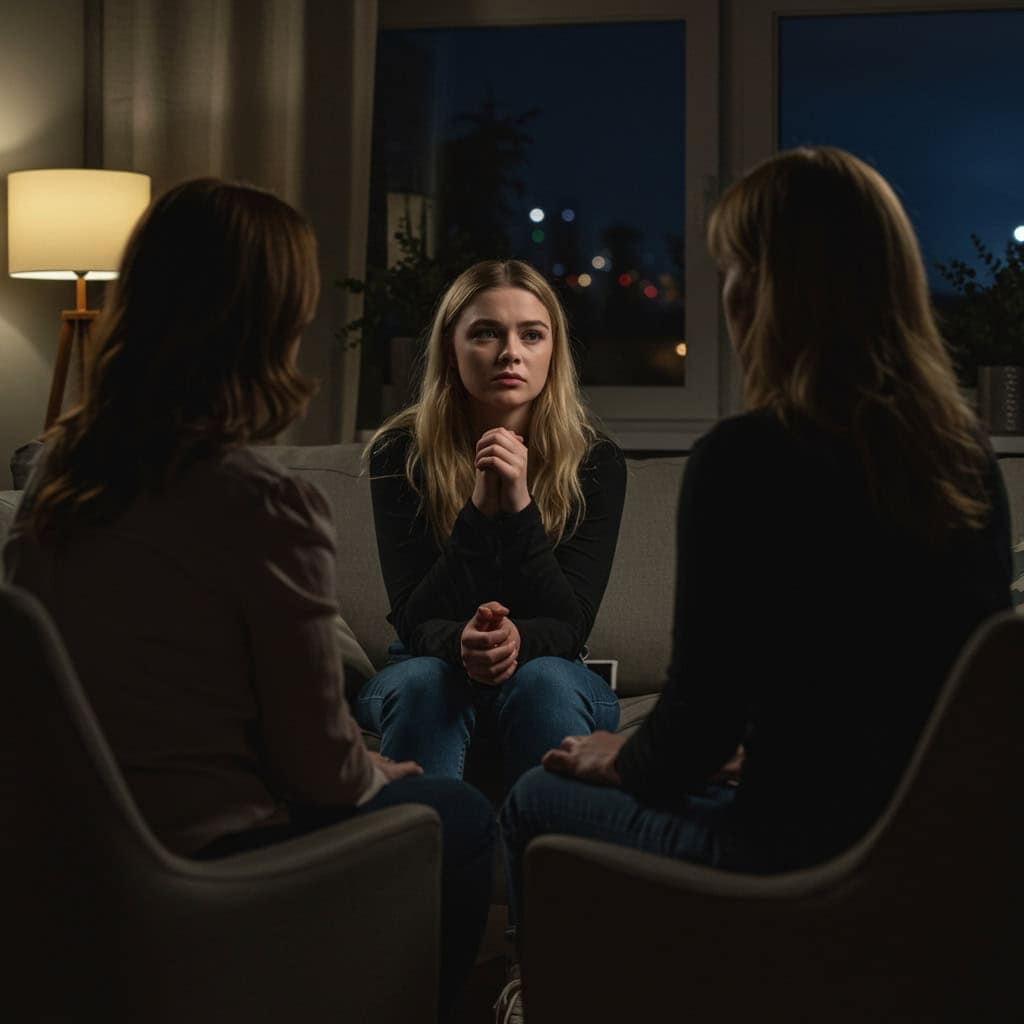
As the family’s fractures deepened, my cousin—who had been defensive from the very start—sought me out one evening. Her demeanor was nervous, her words rushed. “I need to be honest with you,” she began, unable to meet my eyes. “I was the one who tracked you down online and helped Mom reach out.” She admitted to researching my whereabouts, even drafting some of the early messages I’d received.
When I asked why, her answer stung. “They promised me help with my student loans if I could convince you to come. I needed the money, and… I thought maybe we could fix things for everyone.” The confession left me stunned. What I had thought were organic gestures of familial interest were, in part, motivated by financial desperation.
Her admission added yet another layer of betrayal, but also illuminated the ripple effects of my mother’s illness and the family’s struggles. Money, illness, and loyalty had created a web of incentives and secrets, leaving me unsure who I could trust—or what anyone’s true motivations really were.
The Hospital Consent Form

A few days later, at yet another hospital appointment, I was handed a thick packet of forms. The most important among them was the consent form for living organ donation. My name was printed in bold letters, blank lines awaiting my signature. The page seemed to pulse with the weight of everything it represented: obligation, sacrifice, and the power to choose.
As I sat in the sterile consultation room, pen trembling in my hand, I felt the full gravity of the moment. Signing meant more than agreeing to surgery—it meant accepting the tangled legacy of my family, the betrayal and the hope, the guilt and the love. The Health Resources & Services Administration underscores the importance of true, voluntary consent in such life-altering decisions.
I stared at the paper for a long time, realizing this was the crossroads I could not escape. The choice was mine alone, but the consequences would ripple through my life—and my mother’s—for years to come.
The Late-Night Escape

That night, unable to sleep and suffocating under the weight of everyone’s expectations, I made a decision. I packed a small bag, grabbed my keys, and slipped out the front door while the house was silent. The sky was inky and still as I drove aimlessly, letting the hum of the engine and the empty roads quiet my racing thoughts.
I didn’t know where I was going—just that I needed distance to process everything. The betrayal, the guilt, the impossible choice in front of me all swirled together in the darkness. I found myself parked at a deserted rest stop, staring up at the stars, desperate for clarity and refuge from the storm that had become my life.
Studies show that stepping away from high-stress situations, even briefly, can help restore perspective and emotional balance (American Psychological Association). In that quiet moment, I began to realize that before I could make any decision about my mother, I needed to reclaim my sense of self.
The Motel Room Breakdown
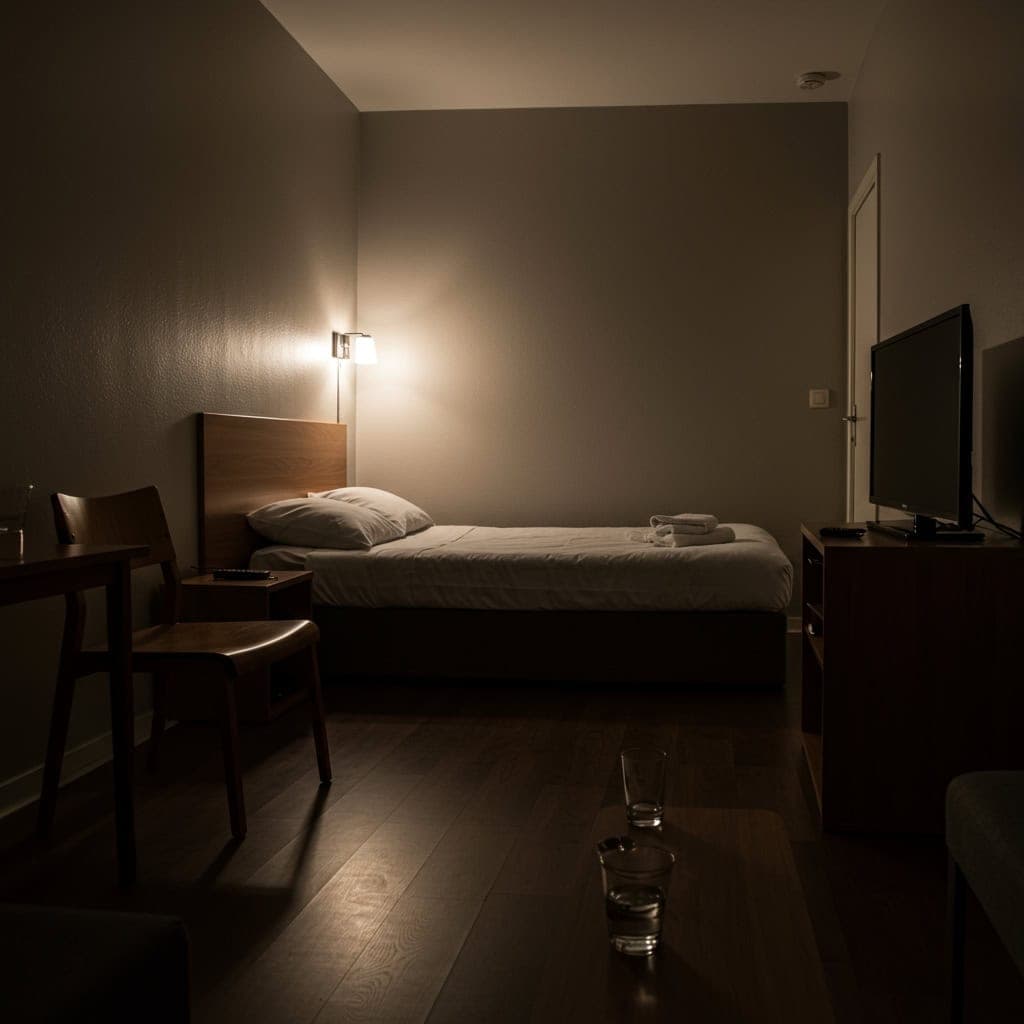
In the cold anonymity of a roadside motel, I finally let myself unravel. The walls seemed to close in as the adrenaline faded, leaving only the raw ache of betrayal, anger, and profound loss. I sat on the edge of the bed and sobbed—loud, messy tears for the family I had longed for, for the trust that had been shattered, and for the impossible position in which I now found myself.
Grief comes in waves, and that night, it hit with force. I replayed every conversation, every secret revealed, every moment of hope and every crushing disappointment. Alone, there was no need for bravado or polite restraint. I could finally admit to myself how deeply wounded I felt—not just by my mother, but by all those who had conspired, however justified they believed themselves to be.
According to the Mental Health America, acknowledging and expressing grief is a necessary step toward healing. In that motel room, I took the first step—letting myself feel it all, without judgment.
The Friend’s Offer

As dawn crept through the thin motel curtains, my phone buzzed with an incoming call. It was Hannah, my oldest friend—the one person who knew my story before it became so tangled. She had seen my missed texts and sensed, even across the distance, that something was wrong.
Her voice was steady and warm as I poured out everything: the medical pleas, the family betrayals, the unbearable pressure. “Come stay with me for a while,” she said without hesitation. “You need space, and you shouldn’t go through this alone.” The relief was immediate, a lifeline thrown into the emotional storm.
Sometimes, genuine support comes from outside the family circle. According to the CDC, leaning on trusted friends can significantly reduce stress and help restore perspective during times of crisis. Hannah’s offer didn’t solve my problems, but it grounded me, reminding me that I still had choices—and people in my corner who cared for me, unconditionally.
The Therapist’s Notes
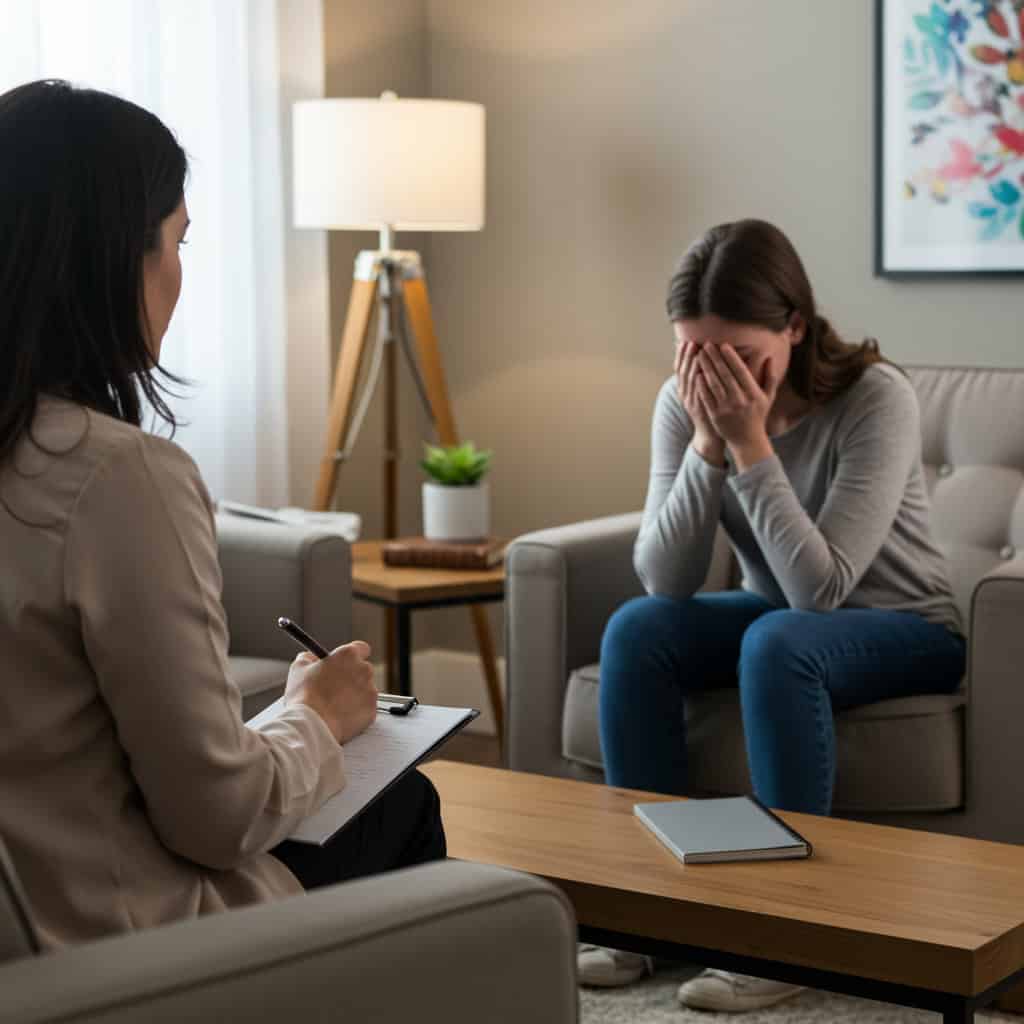
A few days later, at Hannah’s urging, I scheduled an emergency therapy session. Sitting across from a compassionate professional, I finally voiced the tangled mess of guilt, anger, and confusion that had overtaken my life. The therapist listened carefully, asking thoughtful questions and gently challenging my assumptions.
Afterward, she shared her notes with me. “What you’re experiencing,” she explained, “is a classic case of family manipulation and codependency. You were brought back not for who you are, but for what you could give. That’s not love—it’s transactional.” Her words landed heavily, yet brought a strange sense of relief. Someone understood the web I was caught in.
Patterns of family manipulation and codependency can be deeply damaging, as outlined by the Psychology Today. The session helped me see the situation more objectively, giving me permission to set boundaries and consider my own needs instead of being consumed by guilt or obligation.
The Unsent Texts

Alone in Hannah’s spare room, I found myself staring at my phone, scrolling through dozens of unsent texts to my mother. Some were angry and raw, demanding answers or calling out her betrayal. Others were softer, searching for understanding, aching for the apology I still wanted. Each draft reflected a different side of my heart: the child longing for connection, the adult desperate for honesty, the wounded person craving closure.
I hovered over the send button, torn between forgiveness and the urge to sever ties completely. Was I ready to let go of my resentment and try to rebuild, or would reaching out only invite more pain? The Greater Good Science Center at Berkeley notes that forgiveness is a personal journey—one that doesn’t always mean reconciliation, but can provide peace for the person who chooses it.
Each unsent message was a snapshot of indecision and hope. In that quiet moment, I realized the next move was truly mine to make, and that, for the first time, I could choose what was best for me.
The News Article

Just as I was finding a fragile sense of stability at Hannah’s, a new shockwave hit: a friend sent me a link to a local news article. Someone—maybe a relative, maybe a neighbor—had leaked details of our family’s ordeal to the press. The story, splashed across the website of the town paper, painted a sensational narrative of a “long-lost daughter pressured to save her ailing mother.”
Headlines and anonymous quotes fueled public curiosity and judgment, exposing our private heartbreak to the world. Neighbors and strangers alike weighed in online, speculating about motives and betrayal, debating the ethics of organ donation within families. The sense of shame and exposure was overwhelming. According to the American Psychological Association, public scrutiny can amplify trauma and make healing even harder.
What was once an intensely personal struggle had become a public spectacle, adding another layer of pain. Now, every decision I made—or refused to make—would unfold under the harsh gaze of my community.
The Hospital Waiting Room
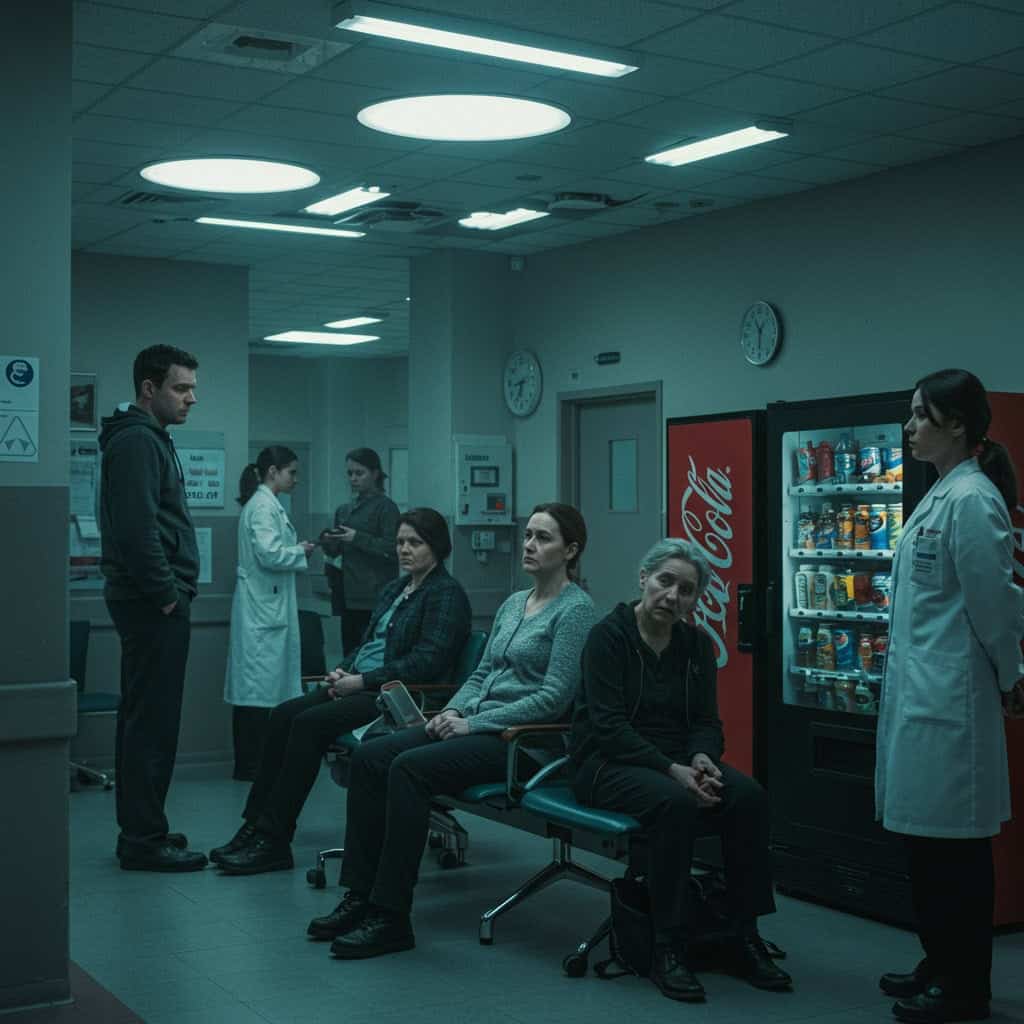
Eventually, pressure and circumstance pulled me back to the hospital, where the entire family gathered in the fluorescent-lit waiting room. The air was thick with anxiety and unspoken accusations. My mother sat pale and silent, flanked by my aunt and cousin, while Daniel lingered awkwardly by the vending machines. Old wounds simmered just beneath the surface, threatening to erupt with every sideways glance or whispered comment.
Tensions peaked as relatives debated what would happen next, some urging me to “do the right thing” while others cautioned against further sacrifice. The National Institutes of Health notes that high-stress family environments can impede medical decision-making and fracture relationships even further.
Sitting in that uncomfortable space, I felt the full weight of my family’s history—every secret, every betrayal, every hope for reconciliation. The waiting room became a crucible where our collective pain boiled over, leaving me more aware than ever of how deeply these wounds ran.
The Anonymous Letter

Just as the family tensions threatened to reach a breaking point, a new twist arrived in the form of an anonymous letter. Delivered in a nondescript envelope with no return address, the letter contained details about my mother’s past that I had never heard before. The author claimed to have known her in her early twenties and described events that contradicted the family’s official narrative.
The letter recounted a previous failed relationship, hints of another child given up for adoption, and financial struggles that predated her illness. It suggested that my mother’s pattern of secrecy and desperate decisions stretched back much further than anyone had let on. The revelations left me reeling, unsure how much was true and how much was intended to manipulate or warn me.
Anonymous communications can have a profound psychological effect, heightening mistrust and confusion (Psychology Today). As I read and reread the letter, the waters grew even murkier, and the line between victim and perpetrator blurred once more.
The Unexpected Ally
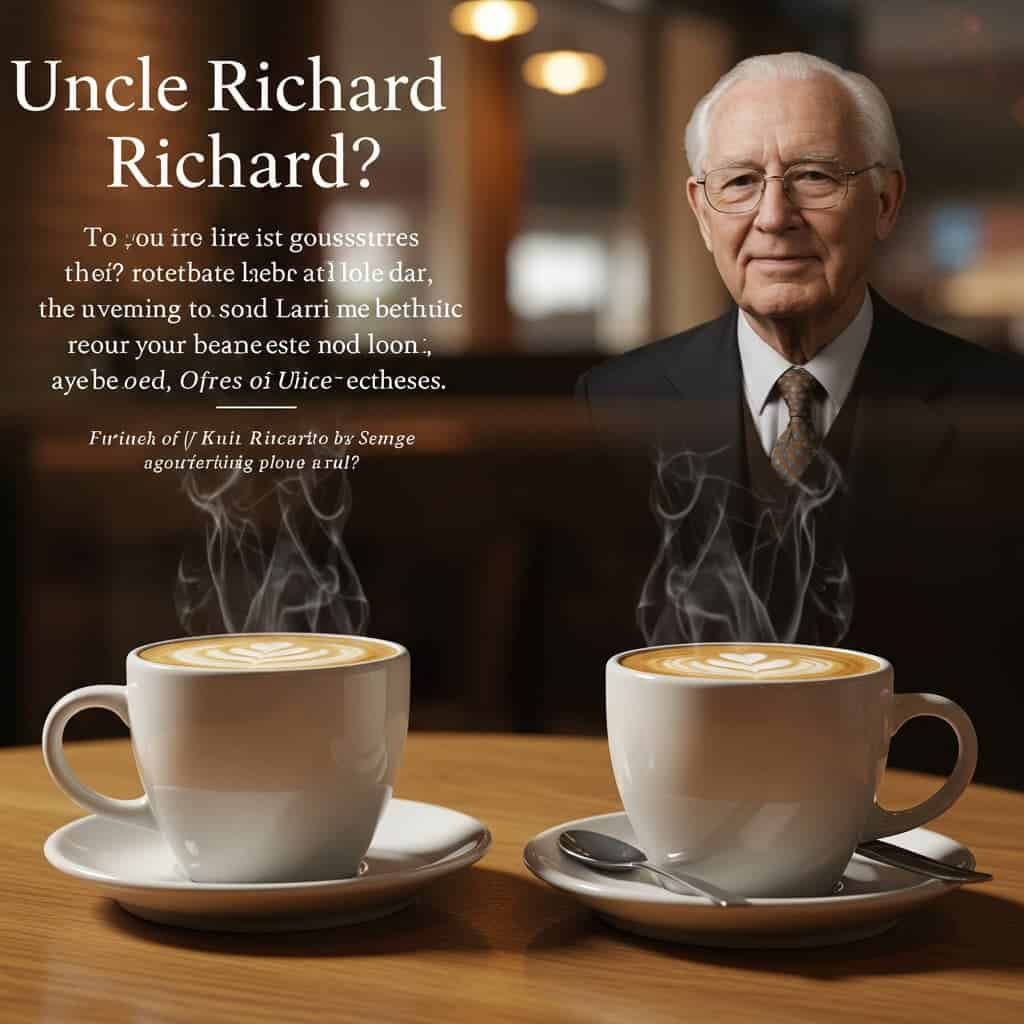
In the aftermath of the anonymous letter, when it seemed as though trust was impossible to rebuild, an unexpected source of support emerged. My mother’s older brother, Uncle Richard, who had always remained on the periphery of family affairs, reached out to me. Until now, he had been a quiet presence at gatherings, rarely taking sides or involving himself in drama.
He invited me for coffee and, over steaming mugs, listened without judgment as I recounted the full story. “I know how complicated your mother is,” he admitted. “You deserve honesty—and the space to make your own decisions.” Uncle Richard offered practical help, from researching donor advocacy resources to simply checking in with a supportive message.
His intervention shifted the family’s dynamic once again, giving me a sense of validation I hadn’t realized I needed. Sometimes, allies appear when least expected, and their presence can be a turning point. As the research on support systems shows, having just one steadfast ally can foster resilience even in the most fractured families.
The Blood Test Appointment

Eventually, the pressure and uncertainty culminated in one final, silent drive to the hospital for the blood test. Sitting in the waiting area, I watched as nurses moved efficiently through their routines, while I was consumed by the enormity of what was about to happen. The sterile scent, the quiet beeping of machines, and the soft shuffle of paperwork seemed to amplify the heaviness in my chest.
When my name was called, I followed a nurse into a small room and rolled up my sleeve. As the needle slid in, I realized that this simple act—one vial of blood—carried the weight of years of abandonment, reunion, hope, and betrayal. It was a step that felt both irreversible and necessary, regardless of what the results might mean for my mother or for me.
The National Kidney Foundation emphasizes that consent and participation in living donation must be fully informed and voluntary. As I waited for the bandage to be applied, I wondered if my decision was truly my own, or the product of a lifetime of complicated love.
The Mother’s Breakdown
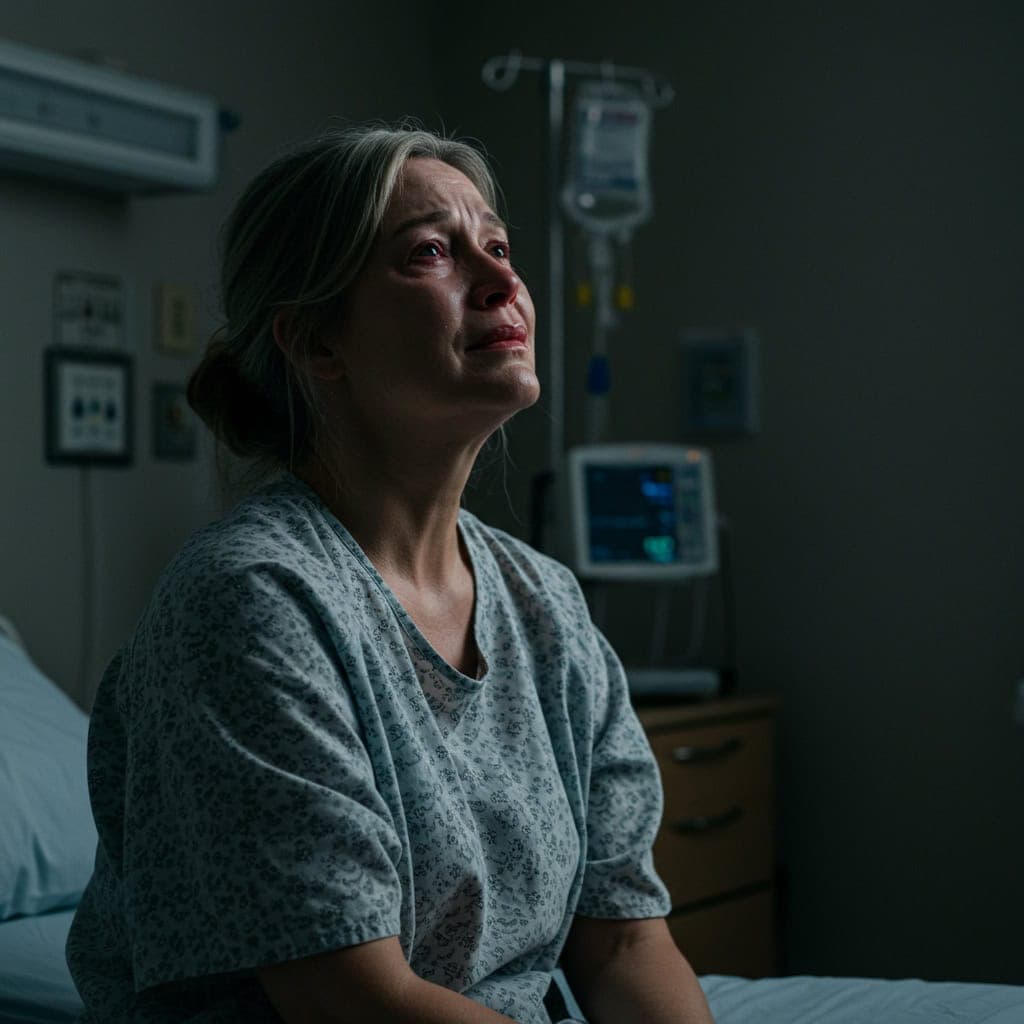
After weeks of tension and guarded conversations, my mother finally let her façade slip. I found her in the hospital room late one evening, shoulders shaking with silent sobs. The weight of her illness, her choices, and the fractured family had become too much to bear. She looked up at me, her face streaked with tears, and for the first time, there was no pretense in her eyes—only raw vulnerability.
“I’m so sorry,” she whispered, voice barely audible. “I was terrified of losing you again… and even more terrified of dying alone. I know I hurt you, and I can’t take it back.” The regret in her words was genuine, unvarnished by excuses or manipulation.
In that rare moment of honesty, I glimpsed the frightened, flawed woman behind all the desperate decisions. Witnessing her breakdown softened something inside me. According to the experts on vulnerability, real connection often begins with truth. This was not forgiveness, but it was the start of something more honest between us.
The Social Worker’s Visit

Shortly after my mother’s breakdown, a hospital social worker was assigned to our case. She sat with us in a quiet office, her calm demeanor belying the seriousness of her questions. She asked about the history of our relationship, the circumstances of our reunion, and whether I felt pressured to become a donor. Her inquiry was methodical, designed to assess not only my consent, but also whether coercion or family expectations were clouding my judgment.
She explained that, legally and ethically, organ donation must be fully voluntary and free from manipulation—a message echoed by the Organ Procurement and Transplantation Network. The social worker’s presence raised uncomfortable but necessary questions: Was my choice truly my own, or shaped by guilt, obligation, and the tangled legacy of our family?
Her probing highlighted the thin line between love and coercion. For the first time, I was forced to confront my own motivations under the scrutiny of someone whose sole job was to protect me from an irrevocable decision made for the wrong reasons.
The Cousin’s Ultimatum
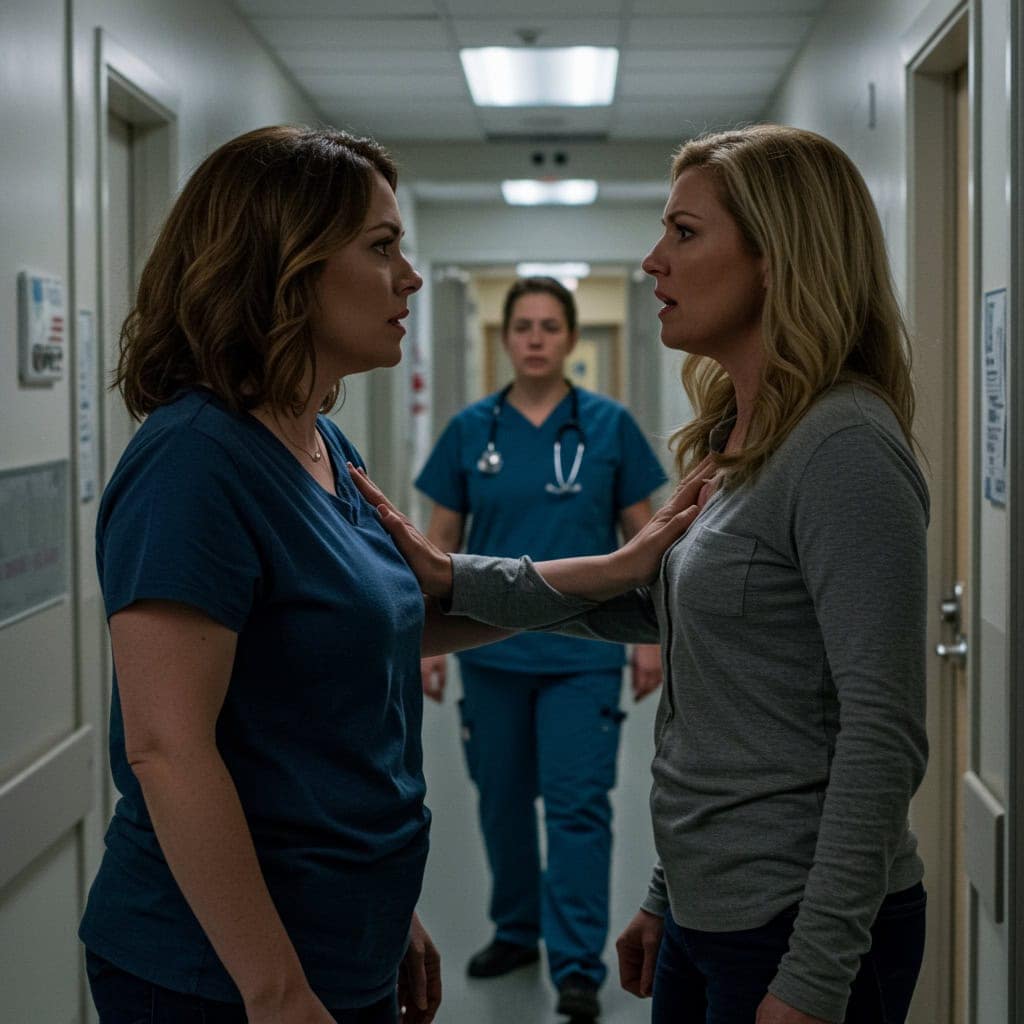
Just when it seemed the family couldn’t fracture further, my cousin cornered me in a hospital corridor, her expression tense and determined. “If you don’t go through with the donation,” she hissed, “I’ll tell everyone what really happened when you were a child—and more about the family’s secrets.” Her tone was cold, her words a threat meant to force my hand.
I was stunned and furious. Her ultimatum made it clear that, for some, the family’s reputation mattered more than healing or reconciliation. She demanded money, too—leverage for her silence. The threat of more secrets coming to light escalated the crisis, making the already volatile situation feel utterly combustible.
Blackmail and coercion within families are, unfortunately, not uncommon in high-stress medical or inheritance disputes, as discussed by the Psychology Today. Her actions left me feeling trapped, angry, and more certain than ever that my next decision needed to be made for myself—not out of fear or intimidation.
The Therapist’s Letter

In the midst of the escalating chaos, a letter arrived from my therapist—a thoughtful gesture after sensing the turmoil I faced. The letter was concise yet powerful, filled with validation and gentle reminders about self-worth and boundaries. “You are not responsible for fixing the family’s pain or carrying others’ burdens at the expense of your own well-being,” she wrote. “It’s okay to say no, and it’s healthy to prioritize your needs in the face of pressure or manipulation.”
Her words felt like a lifeline, cutting through the noise of guilt and expectation with clarity and compassion. She encouraged me to trust my instincts and reminded me that boundaries are not acts of cruelty, but of self-preservation—something supported by the research on healthy boundaries.
The letter became a touchstone, grounding me whenever the pressure mounted. For the first time, I began to see that my consent, my healing, and my future were mine to protect, no matter what anyone else demanded.
The Forgotten Birthday Card
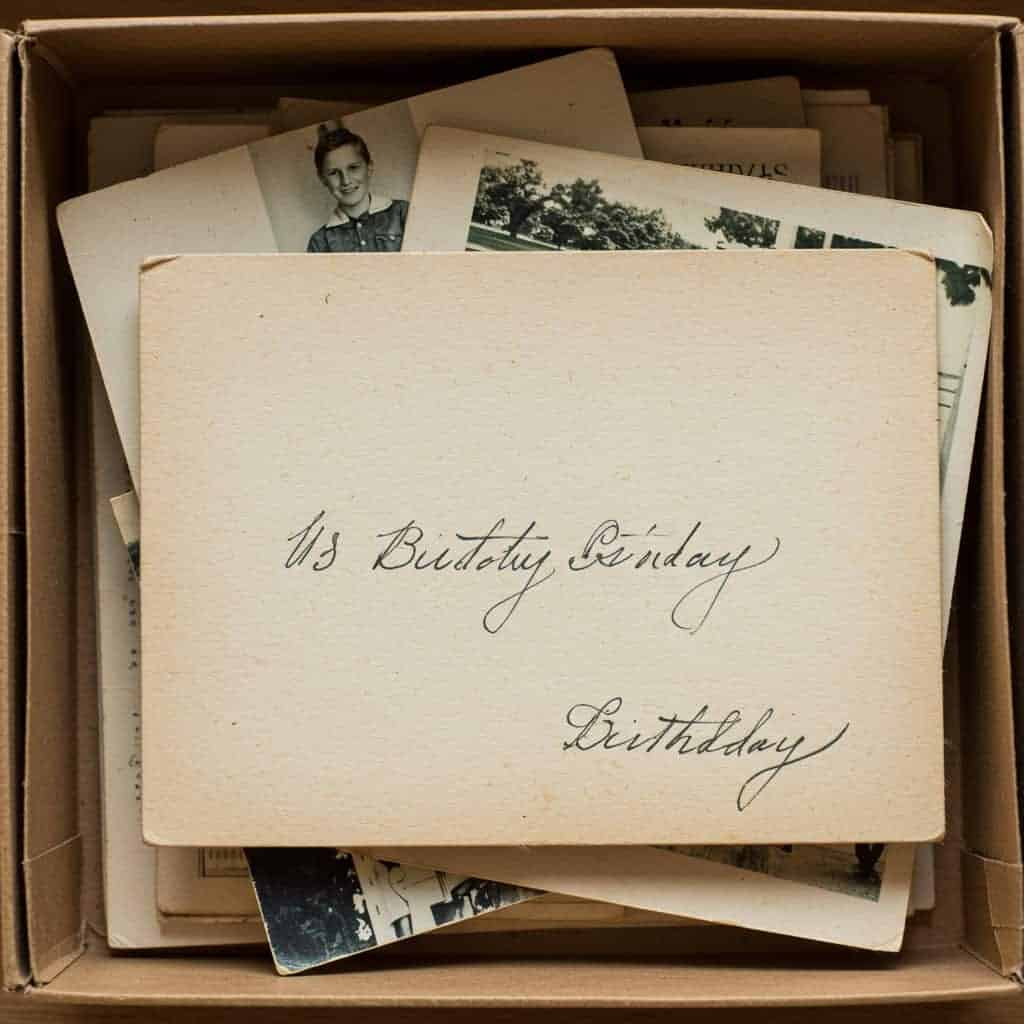
While sorting through a box of childhood mementos at Hannah’s house, I came across a faded birthday card tucked between old school photos. The handwriting was unmistakably my mother’s—delicate, looping letters wishing me a happy birthday from afar. “I hope you always know how much you’re loved, even if I can’t be there,” the card read. Finding it triggered a rush of bittersweet memories and questions that I thought I’d buried long ago.
I remembered the ache of birthdays spent wondering about her, the dreams of a reunion filled with love and answers. The card was a tangible reminder that, despite everything, there had once been hope and affection—feelings now tangled up with betrayal and loss.
According to the research on the emotional power of keepsakes, such objects can stir unresolved grief and longing. Holding the card, I felt both comforted and haunted, reminded that our story had always been complicated—and perhaps always would be.
The Sibling’s Plea
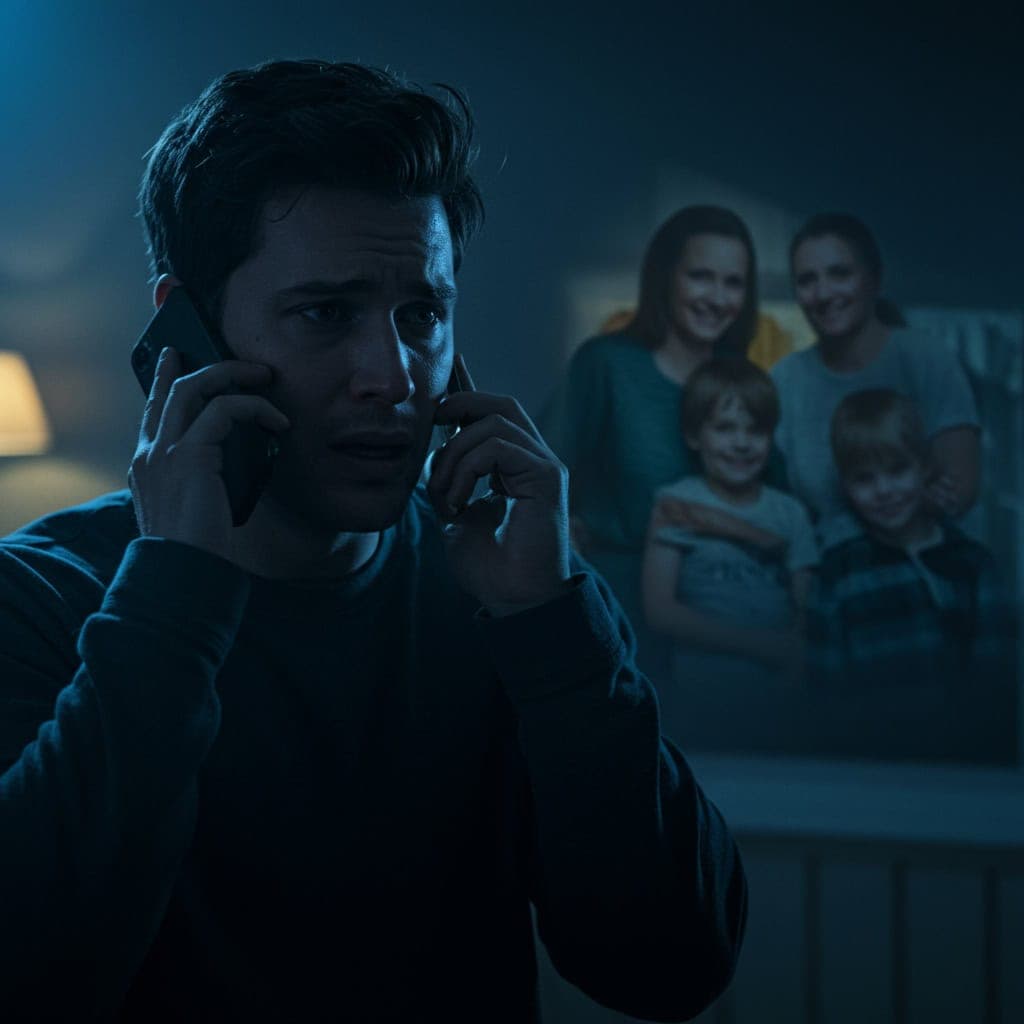
Just as I found myself wavering between self-preservation and guilt, Daniel—my half-brother—reached out. He called late at night, his voice trembling with emotion. “I know this isn’t fair to you,” he began, “but she’s still our mom. I don’t want to lose her. I wish I could be the one to help, but I’m not a match.” His words were heavy with desperation and the unspoken weight of his own regret for refusing earlier testing.
Daniel’s plea added a new layer of emotional complexity, making the decision feel even more urgent and fraught. His vulnerability forced me to acknowledge that I wasn’t just making this choice for myself or my mother, but for the web of relationships that connected us all.
The Psychology Today explores how sibling bonds and obligations can shape major life decisions. Daniel’s voice lingered with me, a reminder that the consequences of my choice would ripple outward, affecting not just one life, but an entire family’s future.
The Shredded Documents

One afternoon, while taking out the trash at my mother’s house, I noticed a pile of shredded papers spilling from the kitchen bin. Curious and unsettled, I pieced together a few strips and quickly realized they were portions of medical records and legal correspondence—some with dates that predated my return, others referencing financial arrangements and undisclosed debts.
The discovery sent a chill down my spine. Why would my mother go to such lengths to destroy these documents? Was it an attempt to hide something from me, the hospital, or the rest of the family? The shredded paperwork suggested a cover-up, deepening my suspicion that there were still secrets lurking beneath the surface.
Research shows that secrecy and the concealment of information can erode trust and complicate already fraught family dynamics (Psychology Today). The image of those shredded documents haunted me, fueling doubts about my mother’s true motives and making the path forward feel even more uncertain.
The Outsider’s Revelation
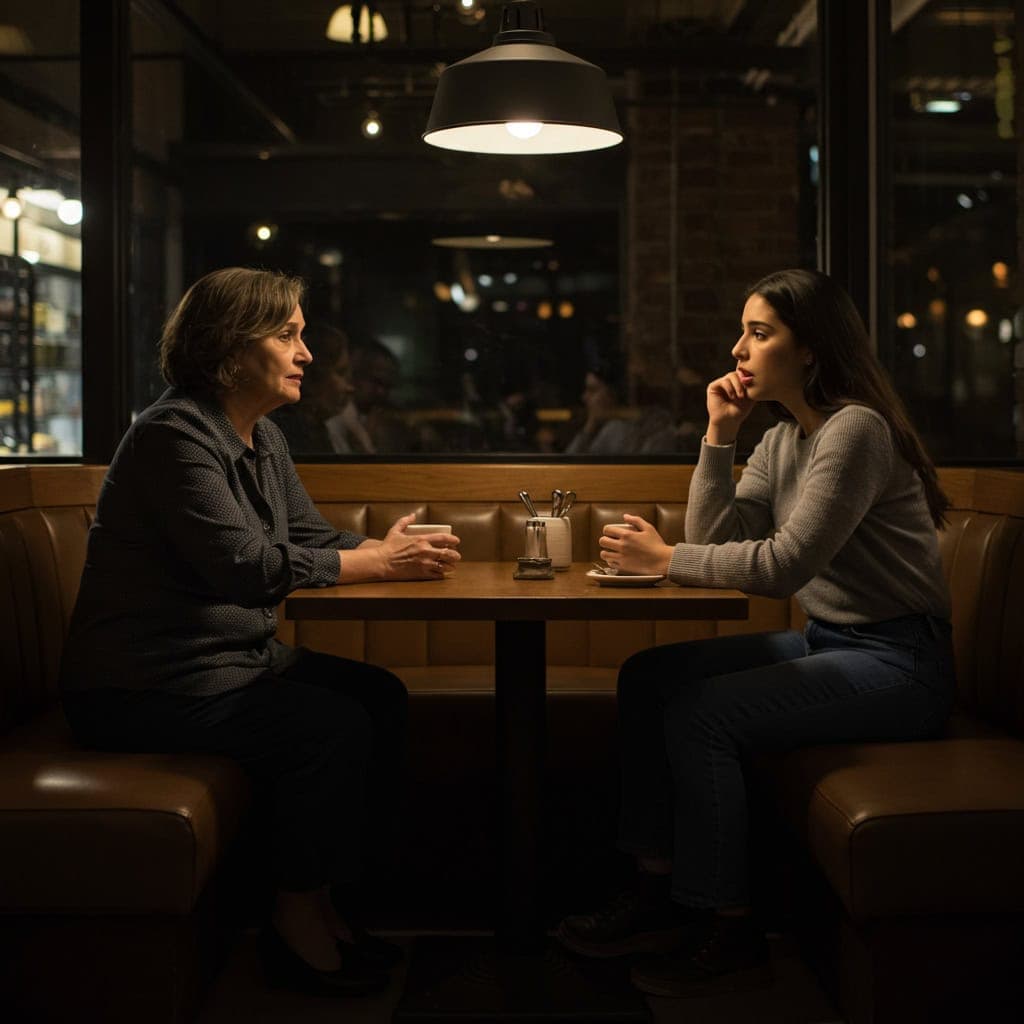
Just when I thought I had uncovered every secret, Mrs. Alvarez—the family friend who had warned me early on—asked to meet for coffee. Her usually calm demeanor was tinged with nervous energy as she revealed a personal connection to my mother’s past that I had never suspected. “I knew your mother long before you were born,” she admitted. “We were best friends… and rivals in more ways than one.”
She confessed to having once been in love with the same man who would later become my biological father. Their falling out, she explained, had led to decades of silence and resentment, coloring how she viewed my mother’s choices and relationships. Mrs. Alvarez’s revelation added a new, human layer to the story, suggesting that past heartbreak and rivalry had contributed to the tangled web of secrets and motives.
Learning about this hidden history forced me to see my mother—and our family’s drama—from a broader, more complicated perspective. It reminded me that every story has multiple sides, and that the past is rarely as straightforward as it first appears (Psychology Today).
The Bank Transfer Receipt
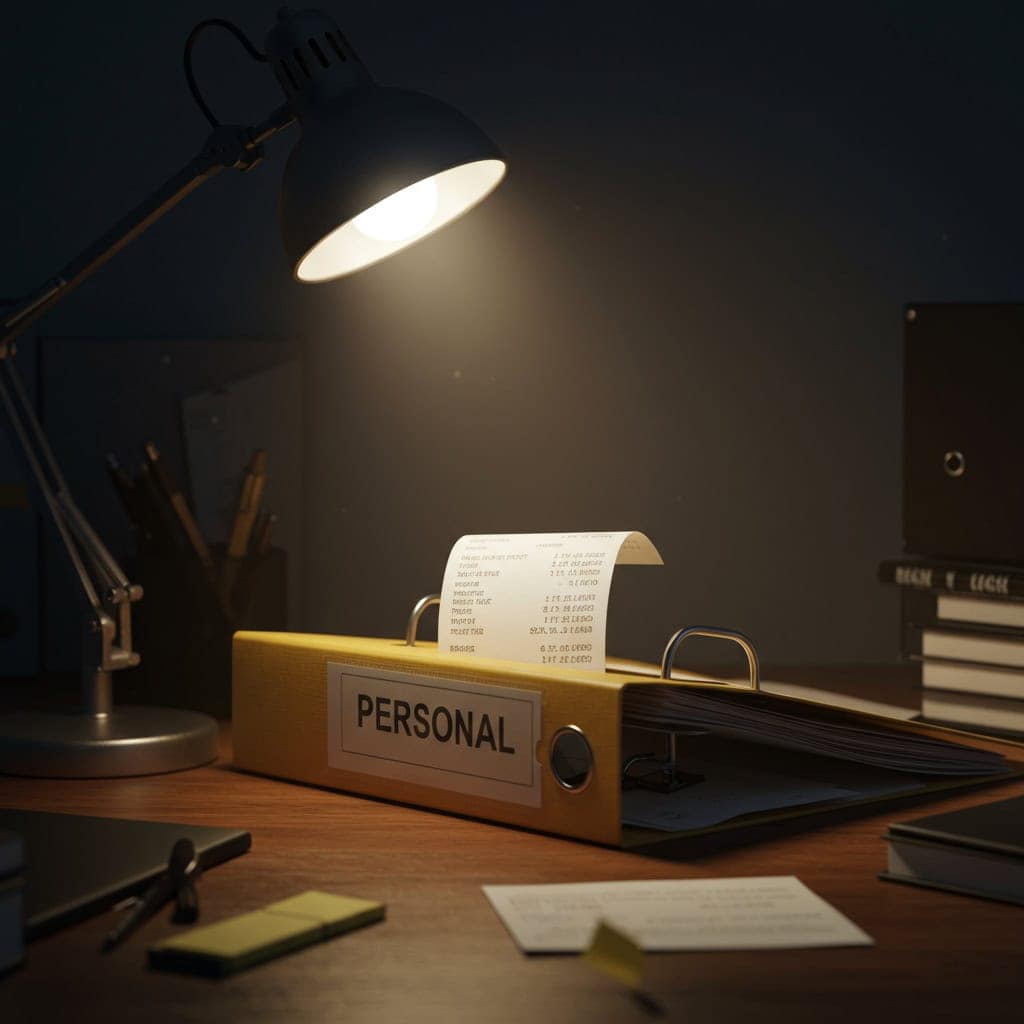
While searching for an insurance form in my mother’s office, I stumbled upon a bank receipt tucked in a folder labeled “Personal.” It detailed a large transfer to an unfamiliar account, dated just days before my initial hospital visit. The amount was significant—enough to cover major expenses or settle longstanding debts. Instantly, questions about money, trust, and manipulation rushed to the forefront of my mind.
Had my mother paid someone in connection with my return? Was this related to the promises made to my cousin, or perhaps a payoff to keep other secrets hidden? The timing, so close to my being drawn back into the family, felt more than coincidental. Money, I realized, had become a powerful lever in our story, influencing not only decisions but the honesty of those around me.
Financial secrecy can be deeply corrosive to both trust and emotional safety within families (CNBC). The receipt became yet another piece of evidence that, in this tangled reunion, motives were rarely as pure as they seemed.
The Mother’s Will
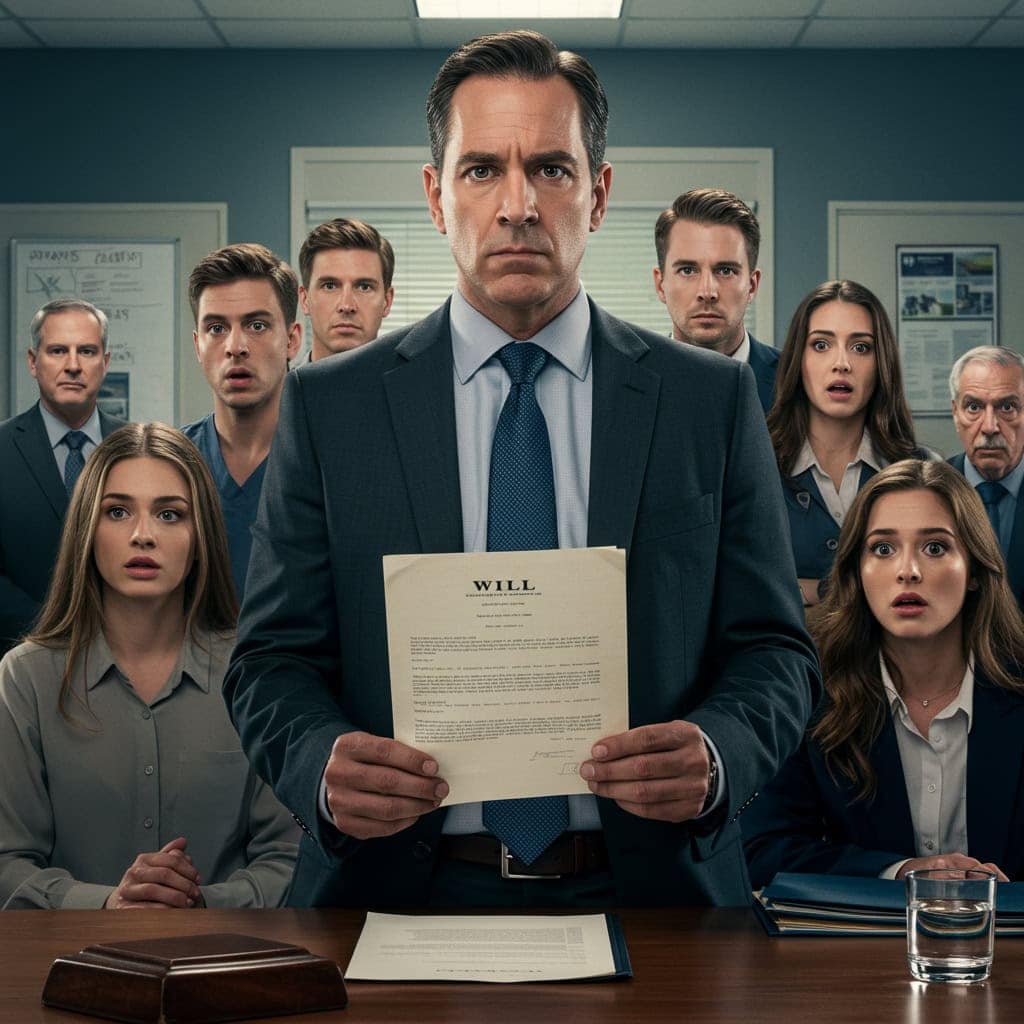
During another tense family meeting at the hospital, my mother’s lawyer produced a copy of her will. Although I had expected the usual allocations—small keepsakes, sentimental pieces—I was blindsided by the specifics. Several unexpected beneficiaries were listed, including distant relatives I barely knew and even the family friend who had once rivaled my mother for my father’s affection. The largest bequest wasn’t to her children, but to a charitable trust set up in her own name.
More surprising was the will’s tone: subtle jabs at family members who had “turned their backs,” and pointed omissions that made old resentments clear. The document was less a testament of love than a ledger of grievances and unfinished business.
Legal documents like wills can reveal hidden family rifts or serve as a final means of control from beyond the grave (The New York Times). Reading my mother’s will, I saw just how deep her grudges and suspicions ran—and how much our family’s story was shaped by the secrets we kept.
The Family Group Chat
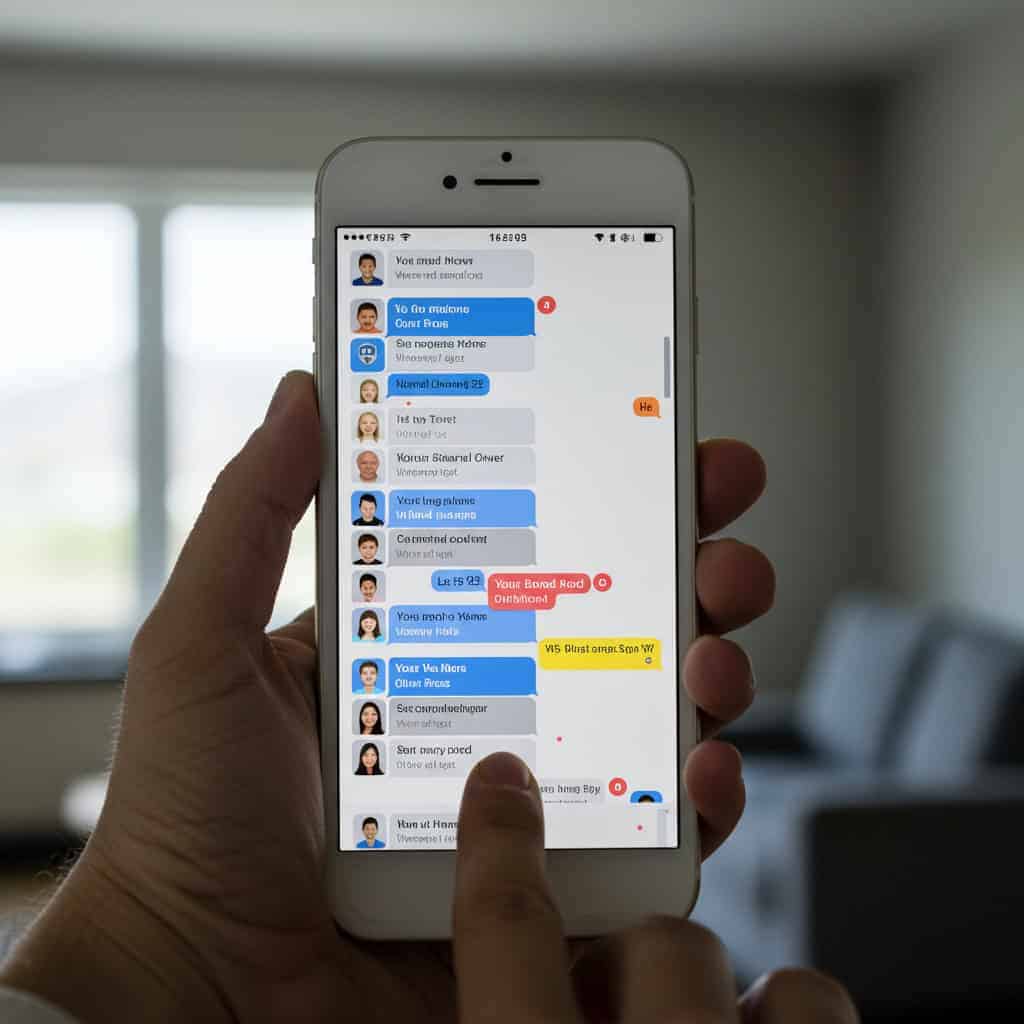
It didn’t take long for the simmering resentments to erupt on the family group chat. What began as a logistical discussion about hospital visits quickly devolved into a barrage of accusations, confessions, and emotional outbursts. My cousin lashed out about broken promises. My aunt defended her role but admitted to hiding the truth. Daniel, usually reserved, typed a long message confessing his own guilt and resentment for being left out of so many decisions.
What had once been a place for sharing photos and holiday plans became a battleground where every hidden wound and grievance was exposed for all to see. The unraveling was swift and public, with relatives taking sides or leaving the chat altogether.
Digital communication often amplifies family conflict, stripping away nuance and escalating misunderstandings (Psychology Today). As the notifications piled up, I realized the group chat had become a mirror of our fractured family—raw, messy, and impossible to ignore.
The Doctor’s Warning
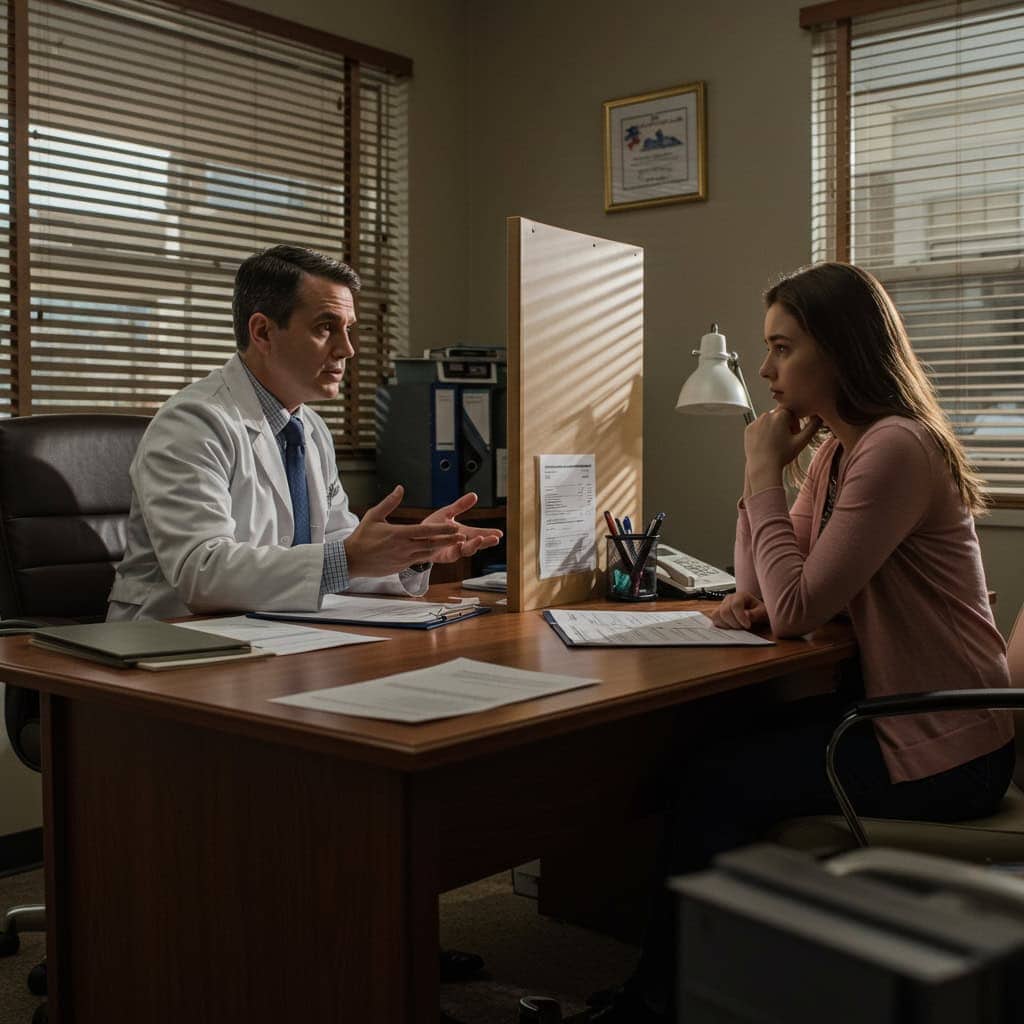
Amid the family chaos, my mother’s lead physician requested a private meeting. His demeanor was stern and professional, his words heavy with significance. He laid out the medical risks of organ donation in blunt detail—possible complications, long-term effects, and the emotional toll of both success and failure. Then, shifting tone, he addressed the ethics: “Donor consent must be freely given, without coercion. If at any point you feel pressured, you have the right to withdraw, regardless of your family’s wishes.”
The warning was clear and uncompromising, adding yet another layer of pressure to an already impossible situation. The National Institutes of Health underscores that living donation ethics require both medical and psychological safeguards.
Hearing the risks and responsibilities laid out so starkly forced me to confront the enormity of what was being asked—and what I stood to lose. The doctor’s words echoed in my mind, reminding me that, ultimately, the choice was mine alone, no matter how many voices clamored for a say.
The Motel Parking Lot
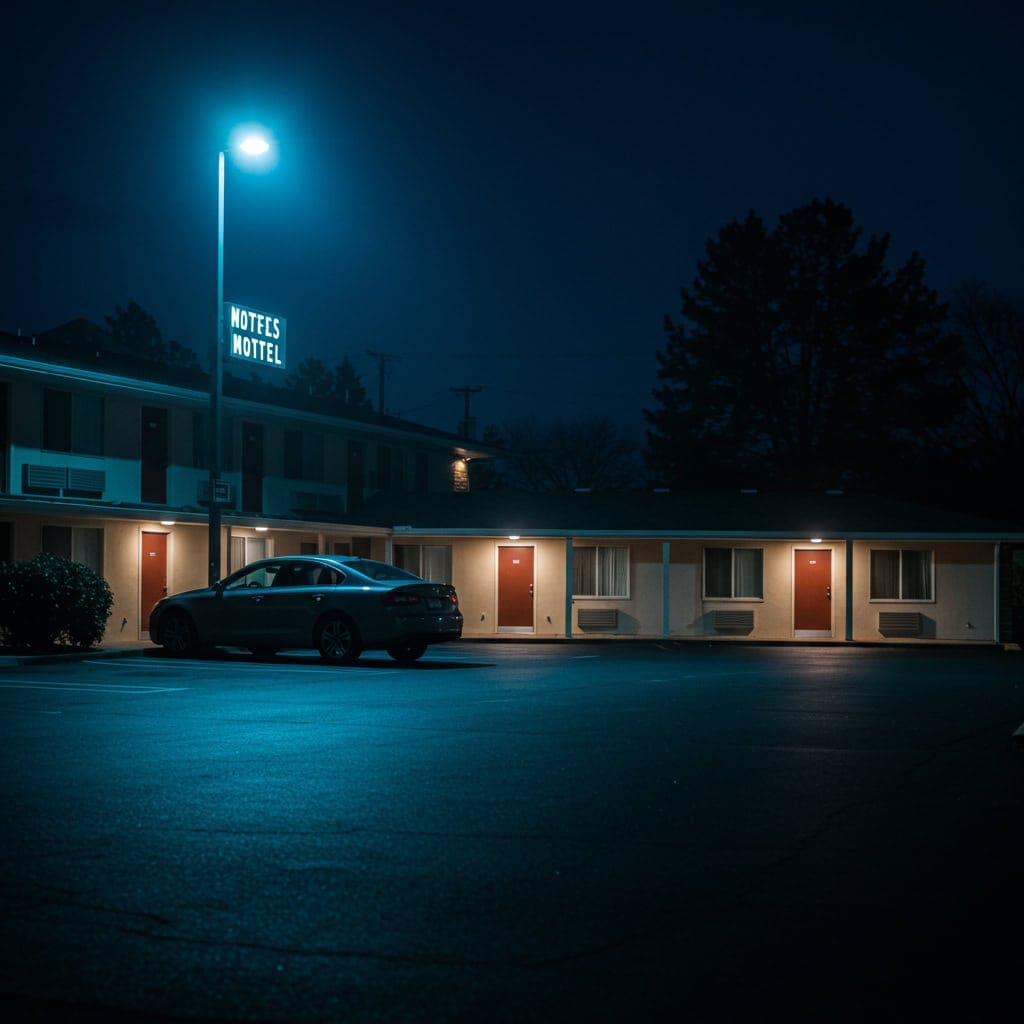
One evening, as I was heading to my car outside the motel, my cousin intercepted me. The parking lot, dimly lit and nearly empty, became the backdrop for a confrontation that had been brewing for weeks. Voices rose, echoing off the concrete as we hurled accusations and frustrations that had gone unsaid for too long.
She demanded to know why I was “destroying the family” by hesitating, accusing me of selfishness and betrayal. I fired back, laying bare the pain of manipulation and the impossible position I’d been forced into. The argument quickly turned personal, each of us venting years of resentment, jealousy, and guilt that had nothing—and everything—to do with my mother’s illness.
Public arguments between family members, especially in stressful situations, can deepen divides and cause lasting emotional wounds (Psychology Today). As the shouting faded into silence, I realized the cracks in our family were now visible for all the world to see.
The Return Home

After weeks of turmoil, I finally made the long drive back to my own apartment. The familiar sights and quiet comfort of my living room felt like a balm after so much chaos. Surrounded by belongings that reflected my true self—photos of friends, books I had chosen, art I loved—I began to reclaim a sense of identity that had been lost in the storm of family crisis.
In that space, I had room to reflect on what family really means. Is it defined by blood, by shared history, or by the choices we make to support and respect each other? The answer felt more complicated than ever. According to the Greater Good Science Center, family is as much about emotional bonds and chosen relationships as it is about genetics.
Returning home didn’t resolve the tangled legacy of secrets and pain, but it reminded me that my own boundaries, values, and well-being mattered. In the quiet, I found the first stirrings of peace—and the strength to decide what came next.
The Compromised Medical File
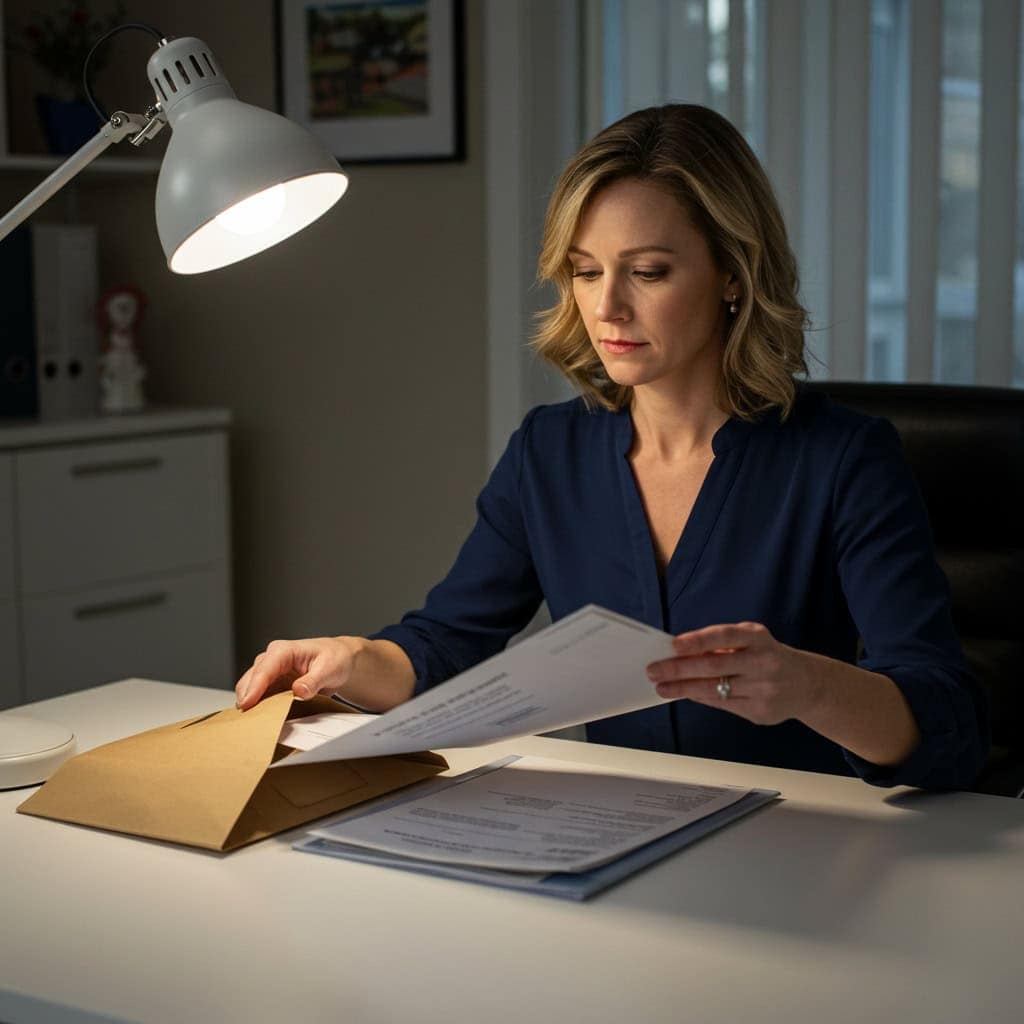
Not long after settling back into my own life, an envelope arrived from the hospital’s records office. Inside was a duplicate set of my mother’s medical files—this time, more complete and less carefully curated than the folder she had once let me see. As I pored over the documents, discrepancies jumped out. Test results and timelines didn’t quite match the dire narrative she had spun. Some reports suggested her condition, while serious, was not as imminently life-threatening as I had been led to believe.
The realization hit hard: my mother had exaggerated, perhaps even manipulated, the urgency of her illness. Whether out of desperation, fear, or a need for control, she had not told the whole truth.
Medical misinformation, especially within families, can have profound ethical and psychological consequences (National Institutes of Health). The emergence of these files forced me to reevaluate everything that had happened, deepening my skepticism and making the boundaries I set for myself feel even more necessary.
The Aunt’s Apology

One evening, my aunt called and asked if we could talk privately. Her voice, usually sharp and commanding, now sounded small and uncertain. Over the phone, she apologized for her role in orchestrating my return and confessed to harboring doubts even as she helped my mother with the plan. “I wanted to believe it was for the best,” she said, “but I see now how much hurt we caused you.”
She admitted that fear, loyalty, and her own unresolved issues with my mother clouded her judgment. “I regret enabling her manipulation and not standing up for you when things got out of hand,” she told me, her words halting but sincere. It was the first time I’d heard real remorse from anyone involved.
Private apologies, especially in complicated family situations, can mark a turning point—if not for reconciliation, then at least for personal healing (Psychology Today). Her confession didn’t erase the past, but it was a step toward honesty I desperately needed.
The Legal Threat

Just as the dust from family confessions began to settle, a thick envelope from a law firm landed in my mailbox. The letter inside was formal and intimidating, outlining the family’s “expectation” that I follow through with the donation—and hinting at possible legal action if I refused. While organ donation cannot be legally compelled, the threat was clear: they intended to use every tool of pressure and intimidation at their disposal.
The arrival of the legal notice reignited conflict among relatives, with some seeing it as justified and others condemning it as a step too far. The American Bar Association affirms that, in the United States, living donation must always be voluntary and free from coercion.
Regardless, the threat left me shaken and angry. What had once been a personal, deeply emotional decision had spiraled into a battle fought with lawyers and ultimatums, making clear that the family’s fractures were now deeper—and more public—than ever before.
The Therapist’s Call

Reeling from the legal threat and renewed family conflict, I reached out to my therapist for an emergency phone session. Her calm voice was a lifeline in the chaos. She reminded me to ground myself in the facts—namely, that no one could legally force me into organ donation. More importantly, she encouraged me to focus on my own needs and values, and to remember that boundaries are not just allowed—they are necessary for emotional well-being.
She helped me see that, even when surrounded by pressure and manipulation, my power to choose remained intact. Our conversation reinforced that clarity is found not by silencing the chaos, but by listening to the quiet truth within myself. According to the research on self-care and boundaries, reclaiming agency in times of crisis is essential for long-term healing.
By the end of the call, I felt steadier. The storm could rage around me, but I could still stand firm in my decision—whatever it would ultimately be.
The Final Decision
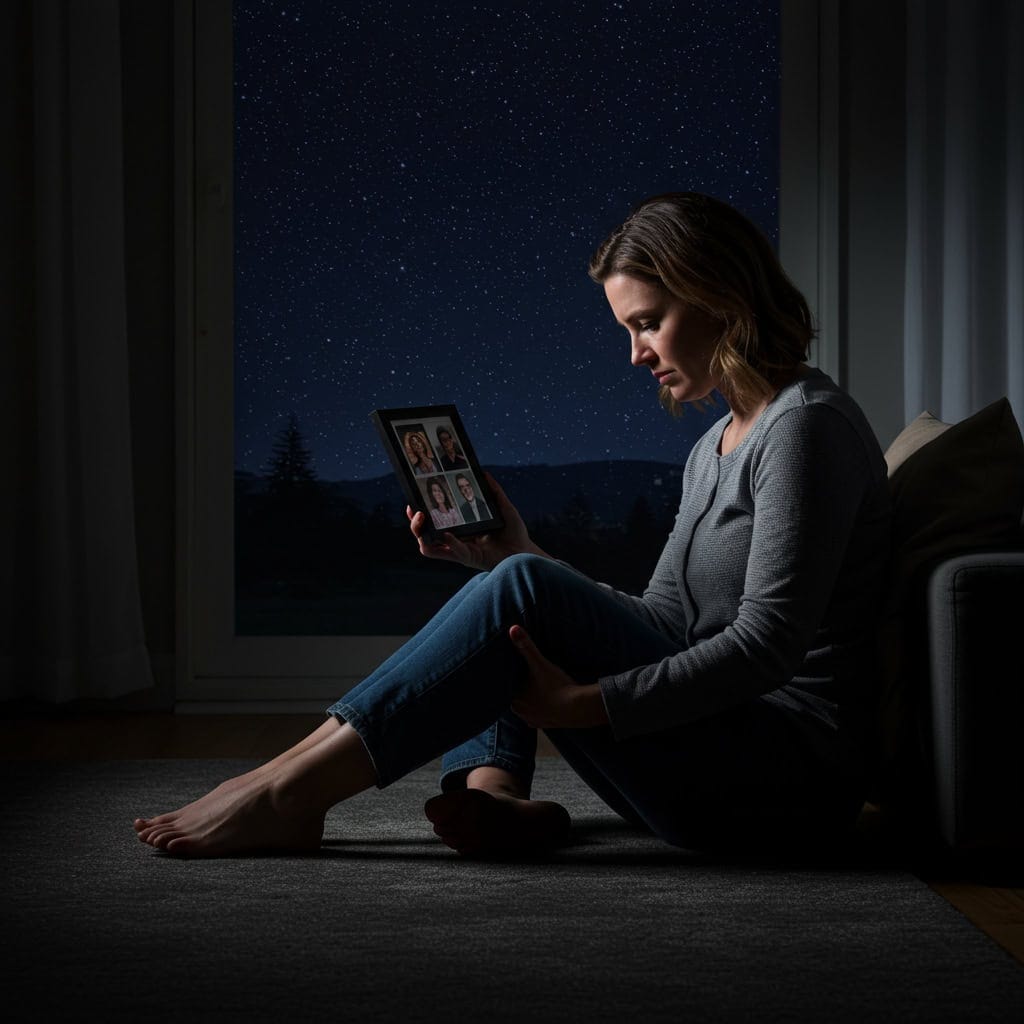
After months of emotional turmoil, impossible choices, and mounting pressure, I reached a crossroads. I spent sleepless nights weighing loyalty to a mother I’d barely known against the guilt of turning away, balanced by a growing sense of self-preservation. I reflected on every voice—my brother’s plea, my aunt’s regret, my therapist’s encouragement—and asked myself what I could live with, not just today but for years to come.
Ultimately, I decided not to go through with the donation. The decision was not made out of vengeance or spite, but from a hard-won recognition of my own boundaries and the need to protect my physical and emotional health. The National Kidney Foundation stresses that living donation must be voluntary, never coerced, and survivors must prioritize their own well-being.
My choice was met with a storm of reactions—anger, heartbreak, and, from a few, quiet understanding. But for the first time, my decision was truly mine, made not out of fear or obligation, but out of self-respect.
The Family Fallout
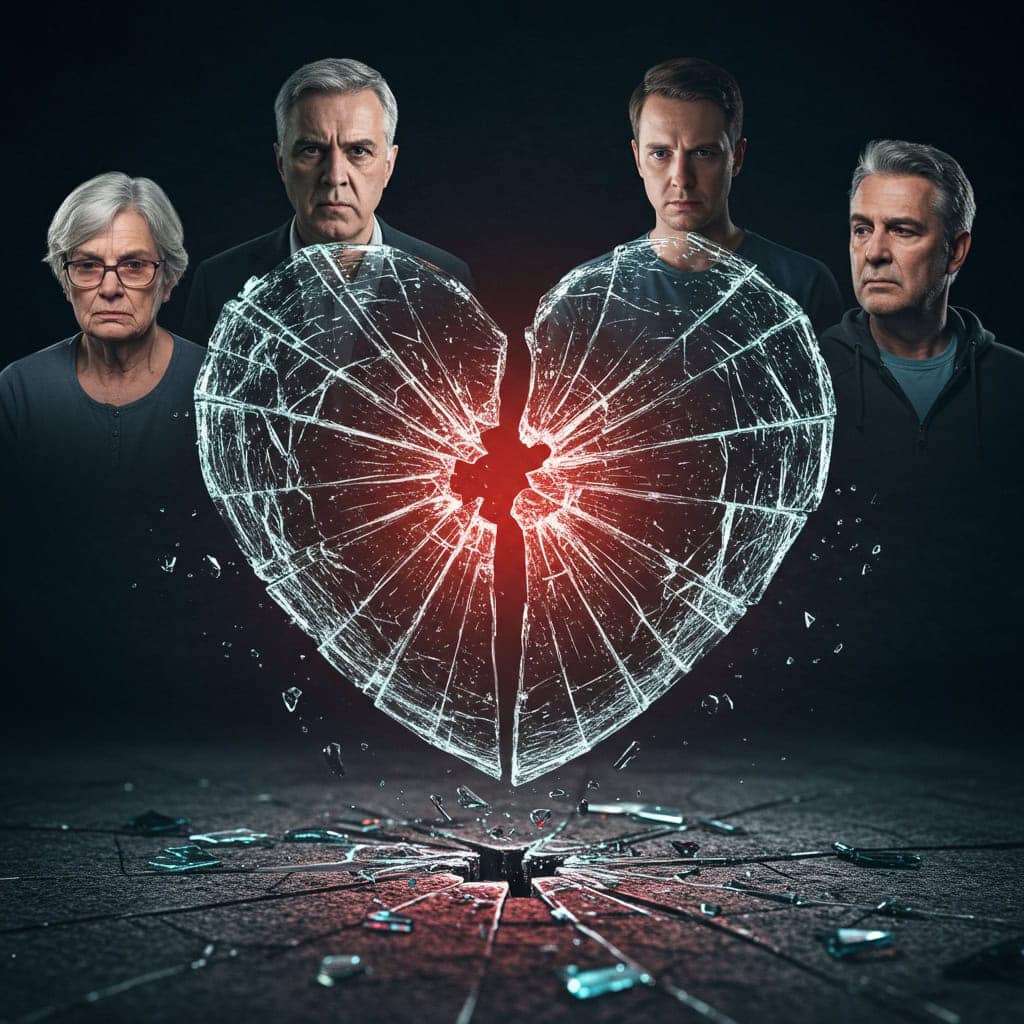
My decision not to donate sent shockwaves through the family. Some relatives responded with fury, accusing me of selfishness and betrayal. My cousin cut off all contact, while my aunt’s apology soon gave way to bitterness. Even Daniel, who had pleaded for my help, struggled to hide his disappointment, though he stopped short of condemnation. My mother, heartbroken and exhausted, retreated into silence, our fragile truce shattered.
The rifts were immediate and, I suspect, lasting. Family gatherings dried up, group chats went silent, and I found myself on the outside of a family I had only just begun to know. The research on family estrangement suggests such divisions can persist for years, if not a lifetime.
Yet, amid the grief and anger, I discovered a new sense of belonging—with myself. The fallout changed my understanding of family: it is not just about blood or duty, but about respect, honesty, and the boundaries we choose to uphold.
The Mother’s Letter

Weeks after the final rupture, an envelope arrived in my mailbox—my mother’s handwriting unmistakable on the front. Inside, her letter unfolded in a torrent of emotion and explanation. She recounted her fear of dying alone, her regret for our years apart, and the terror that had driven her to desperate measures. “I know I hurt you,” she wrote, “but I couldn’t see any other way. I wanted a second chance, for both of us.”
Her words teetered between an apology and a justification, slipping from sorrow to self-defense. She pleaded for forgiveness, but also tried to explain her actions as those of a woman cornered by illness, loneliness, and time running out.
Letters like these often reflect the complexity of grief, regret, and rationalization (Psychology Today). Reading her words, I felt both anger and compassion—a reminder that even those who hurt us most are, themselves, deeply human and flawed.
The Epilogue
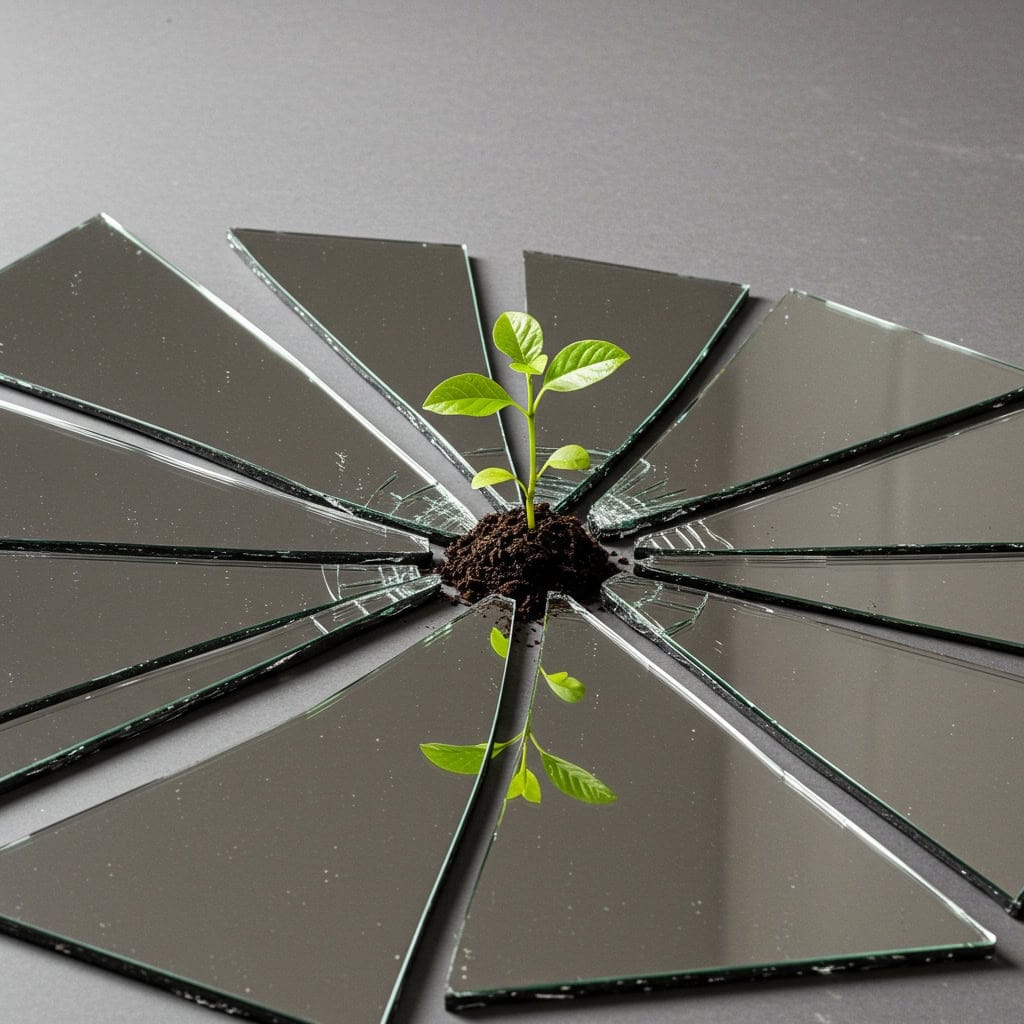
In the months since I made my decision, life has gradually settled into a quieter, more contemplative rhythm. The storm of accusations, guilt, and legal threats has faded, replaced by the softer ache of absence and unresolved questions. My family remains fractured—a collection of individuals carrying wounds that may never fully heal. Yet, in that void, I have discovered a resilience and clarity that once seemed impossible.
I’ve come to understand that family is not just about shared genes or the roles we inherit, but about the choices we make to care for ourselves and each other. Sometimes, those choices mean stepping away from people we love, especially when the cost to our own well-being becomes too great. As experts on family and belonging remind us, boundaries and self-compassion are essential parts of any healthy relationship.
Forgiveness, I’ve learned, is not a one-time act but an ongoing process—one that may never be fully complete. My mother’s final letter sits in a drawer, unread since the first tearful moment. Some days I feel anger; other days, a deep empathy for the fear and loneliness that shaped her choices. The truth of our story is not simple, and neither is forgiveness. And that’s okay.
If you find yourself caught in the tangled web of family obligation and personal boundaries, know that your autonomy matters. Seek support, trust your instincts, and remember that you are allowed to protect your own heart—even from those who gave you life. Healing rarely follows a straight line, but with time, honesty, and the courage to choose yourself, peace can be found—even when forgiveness and truth remain beautifully, painfully unfinished.





